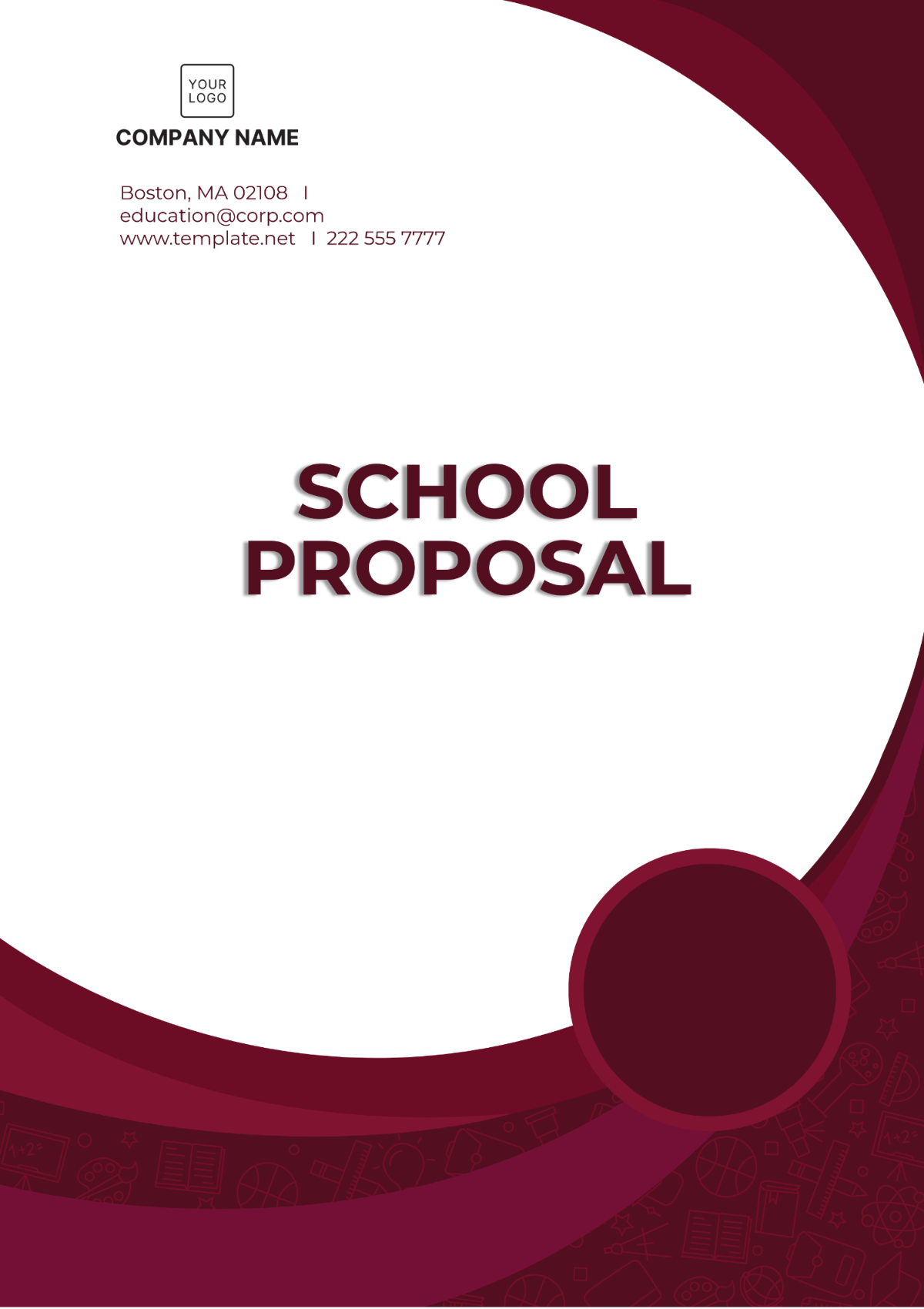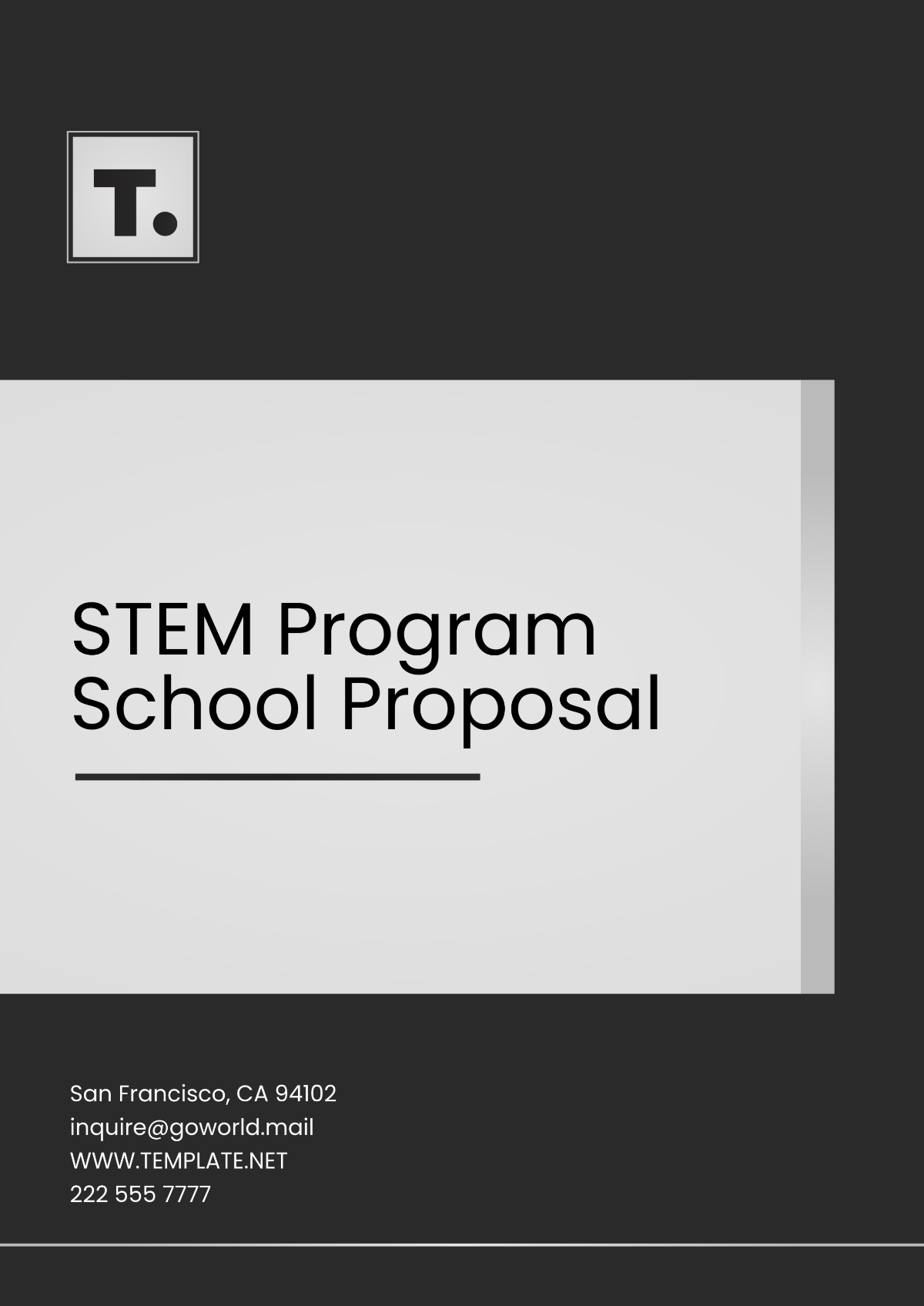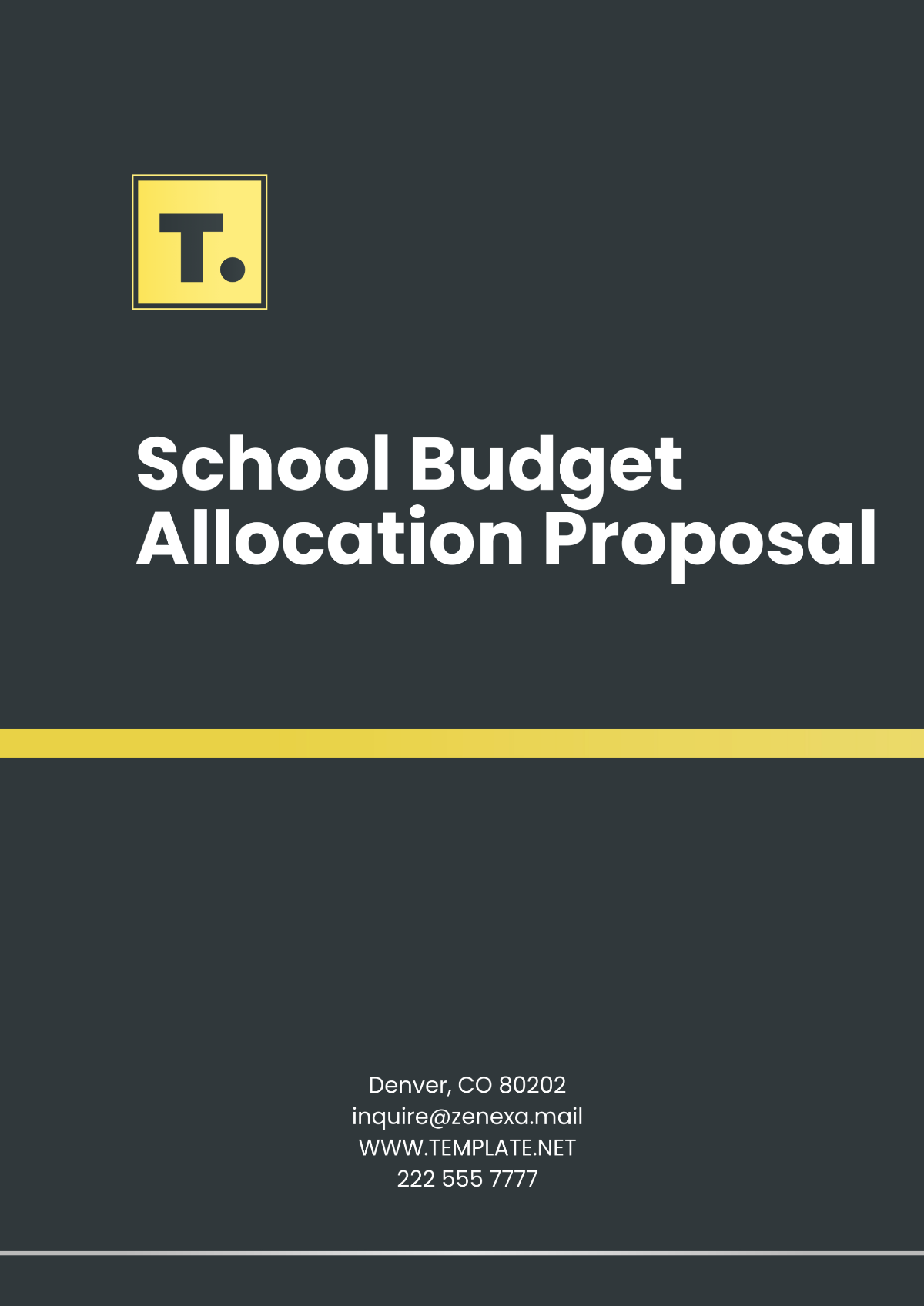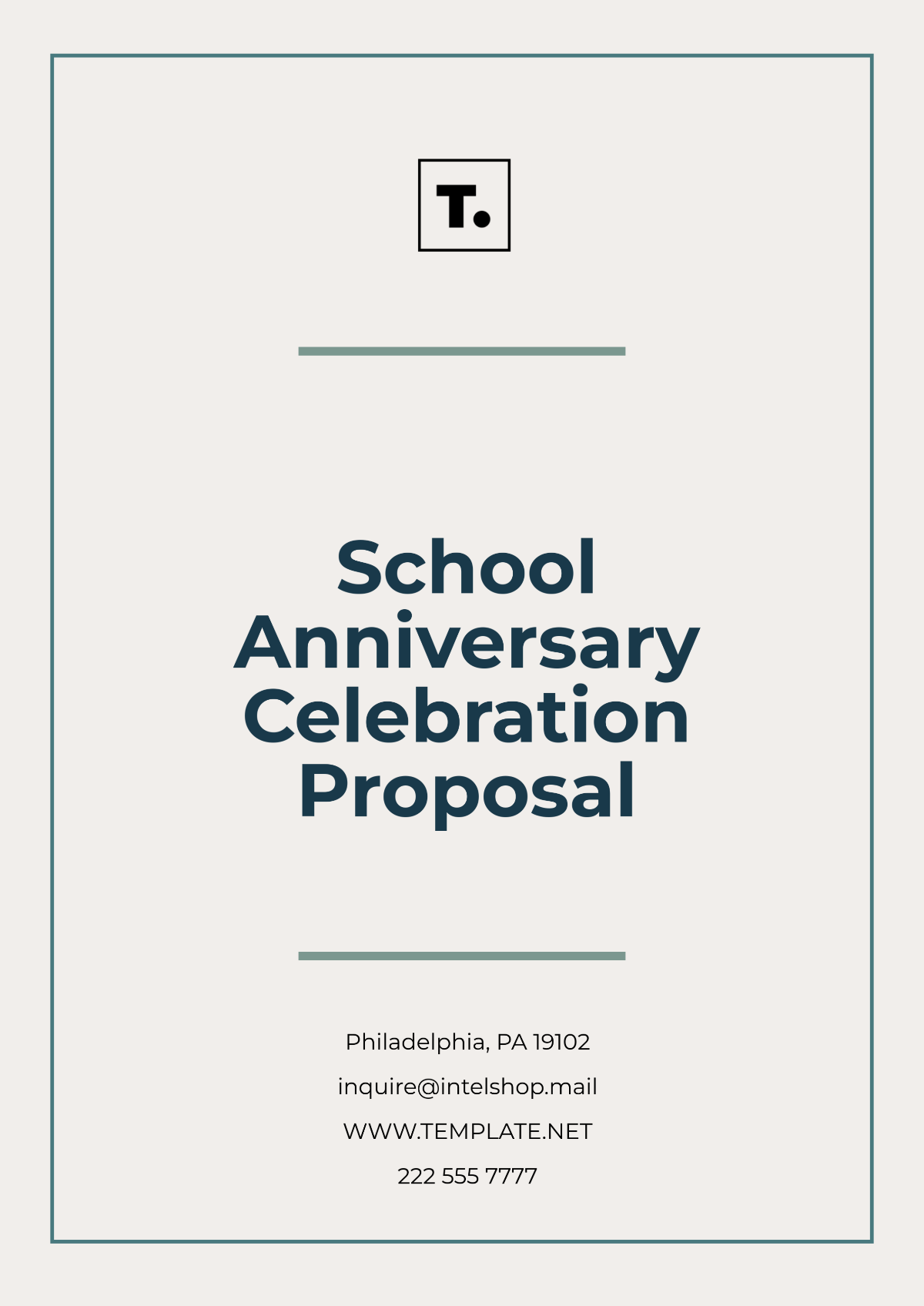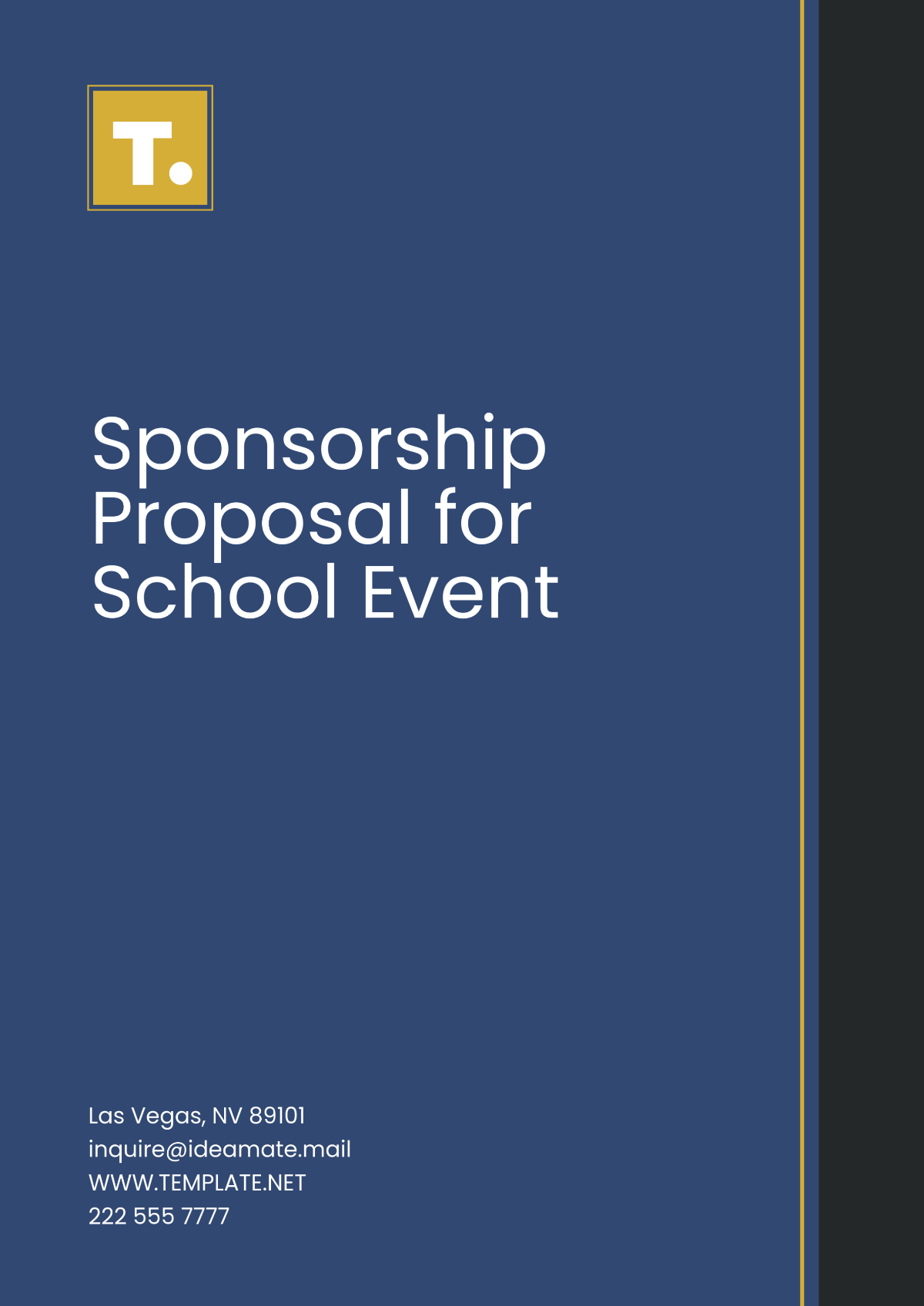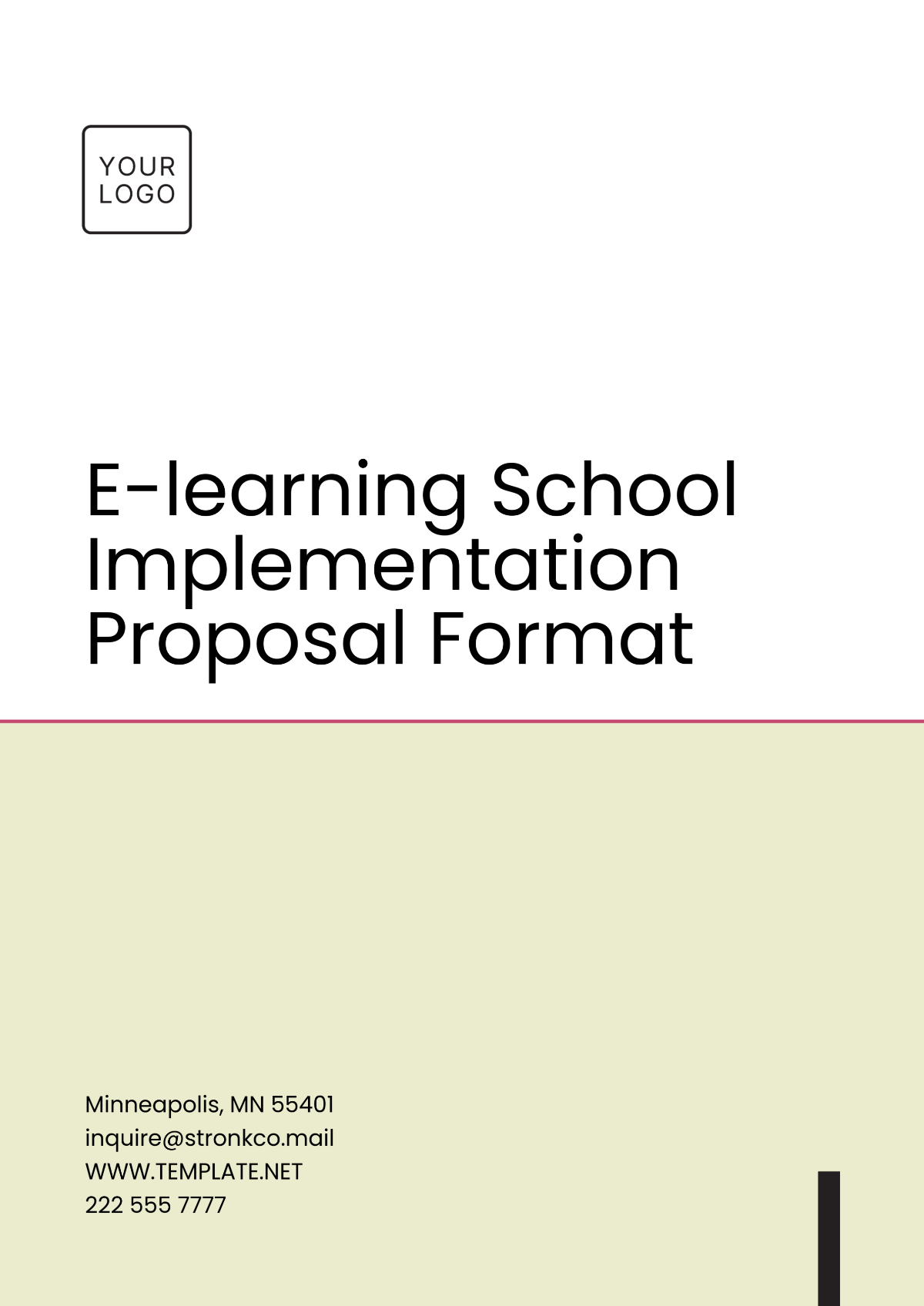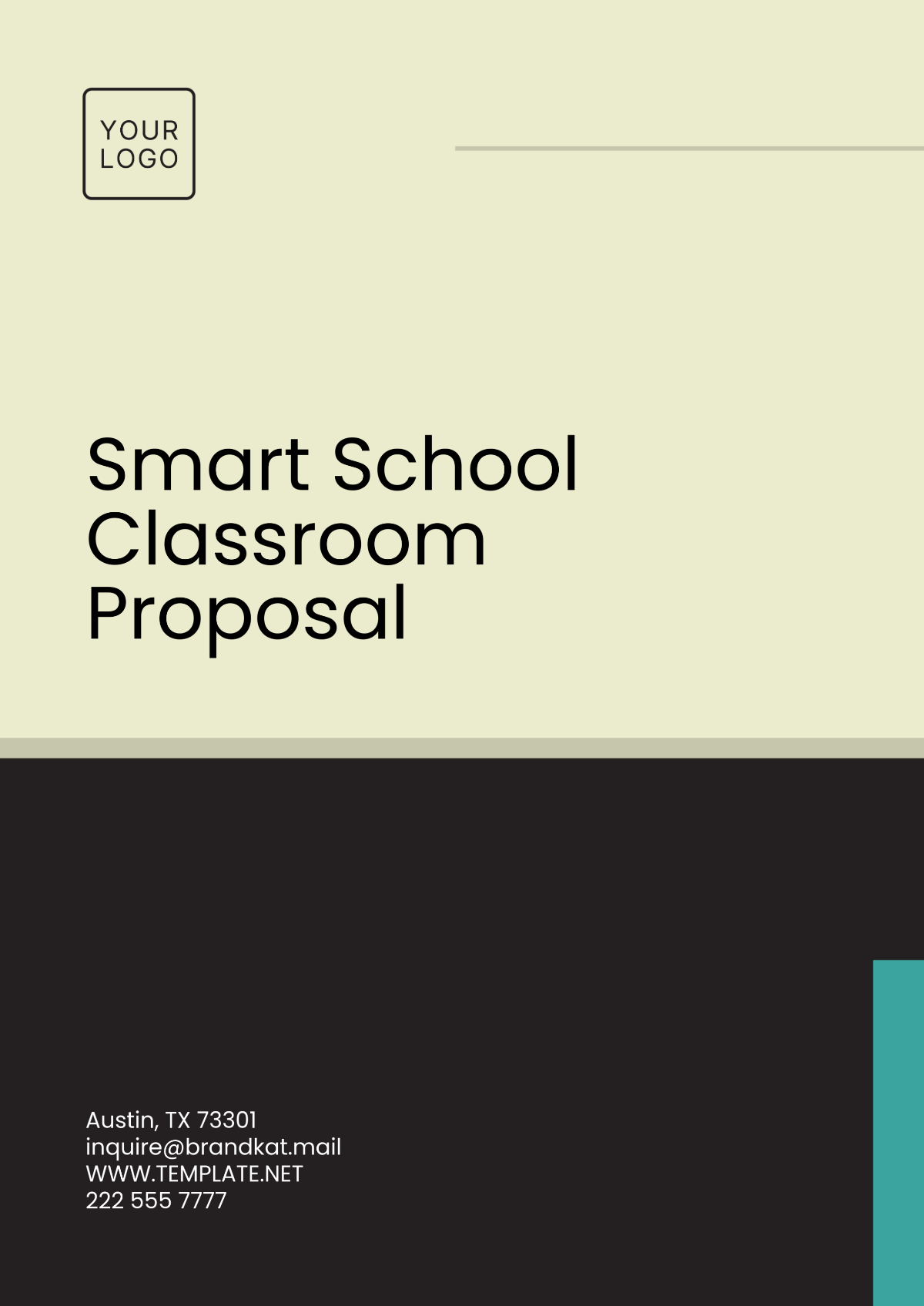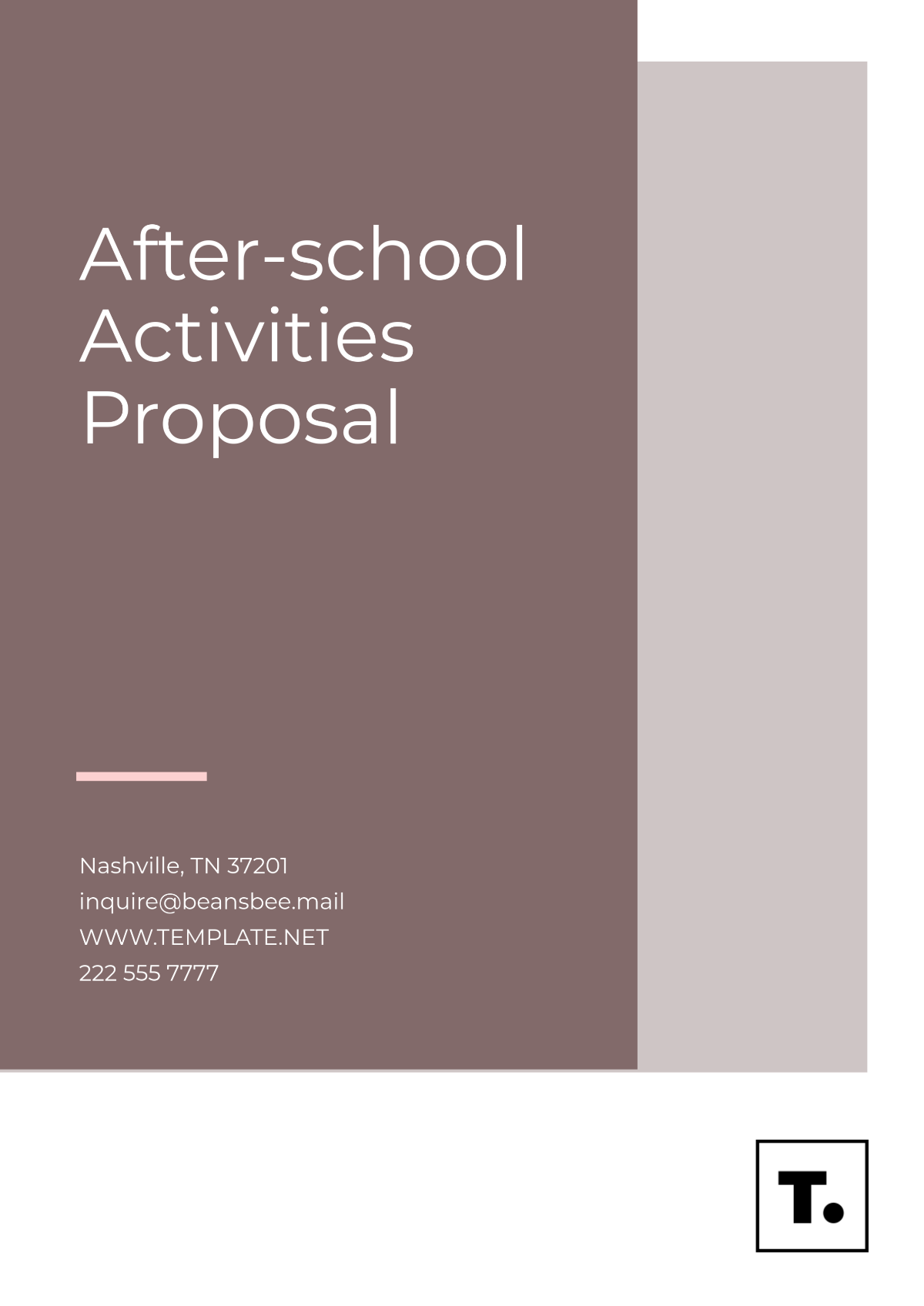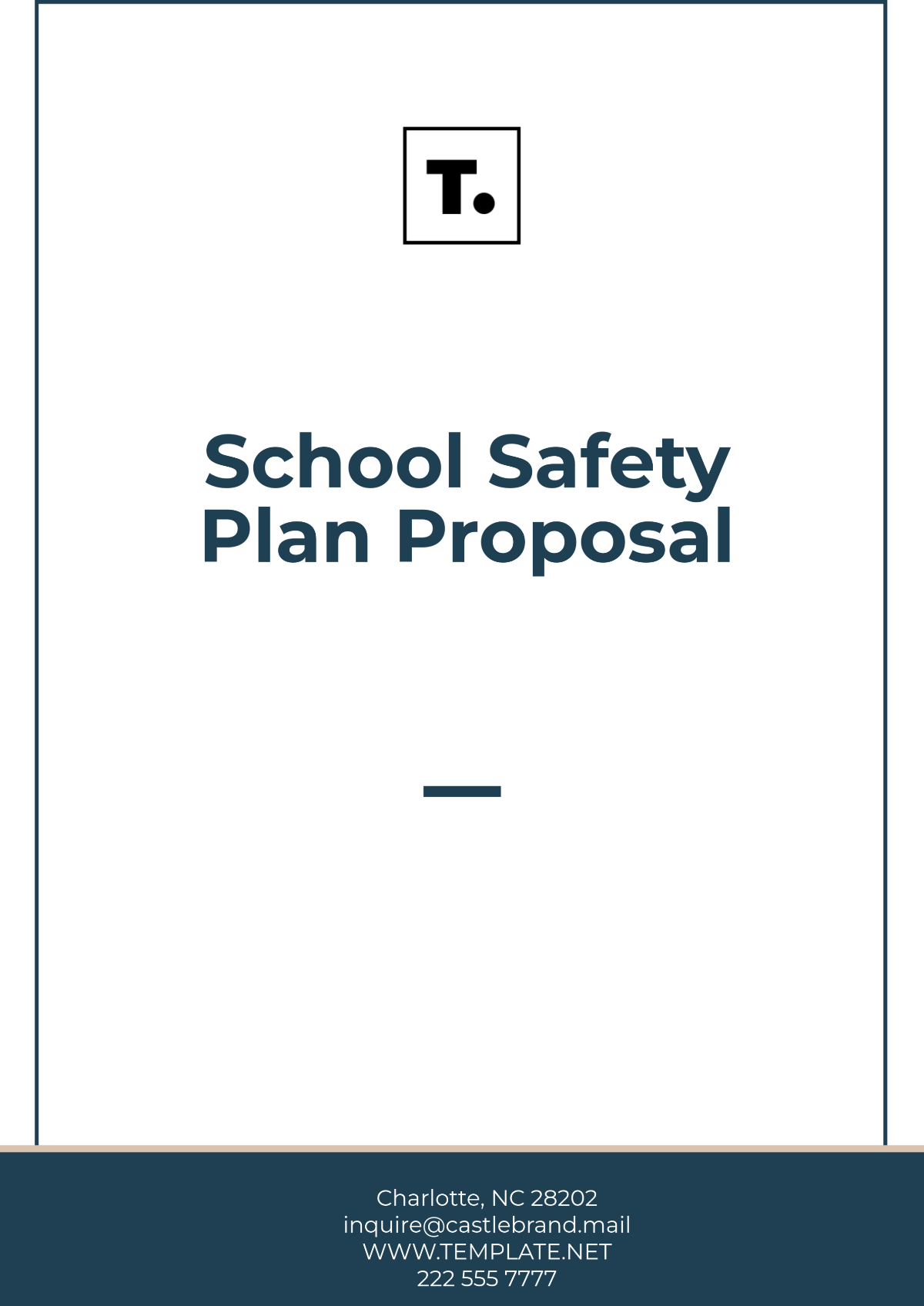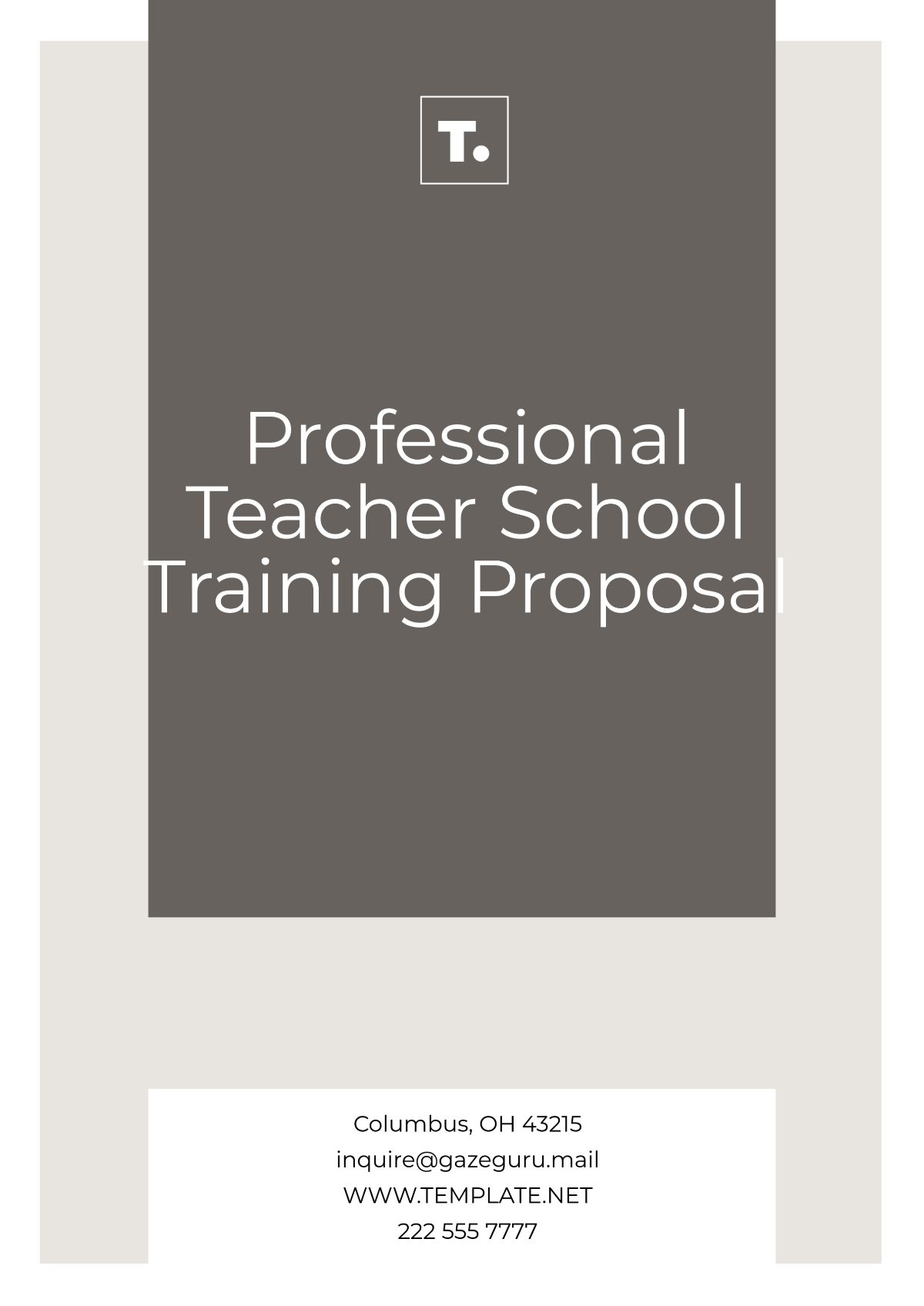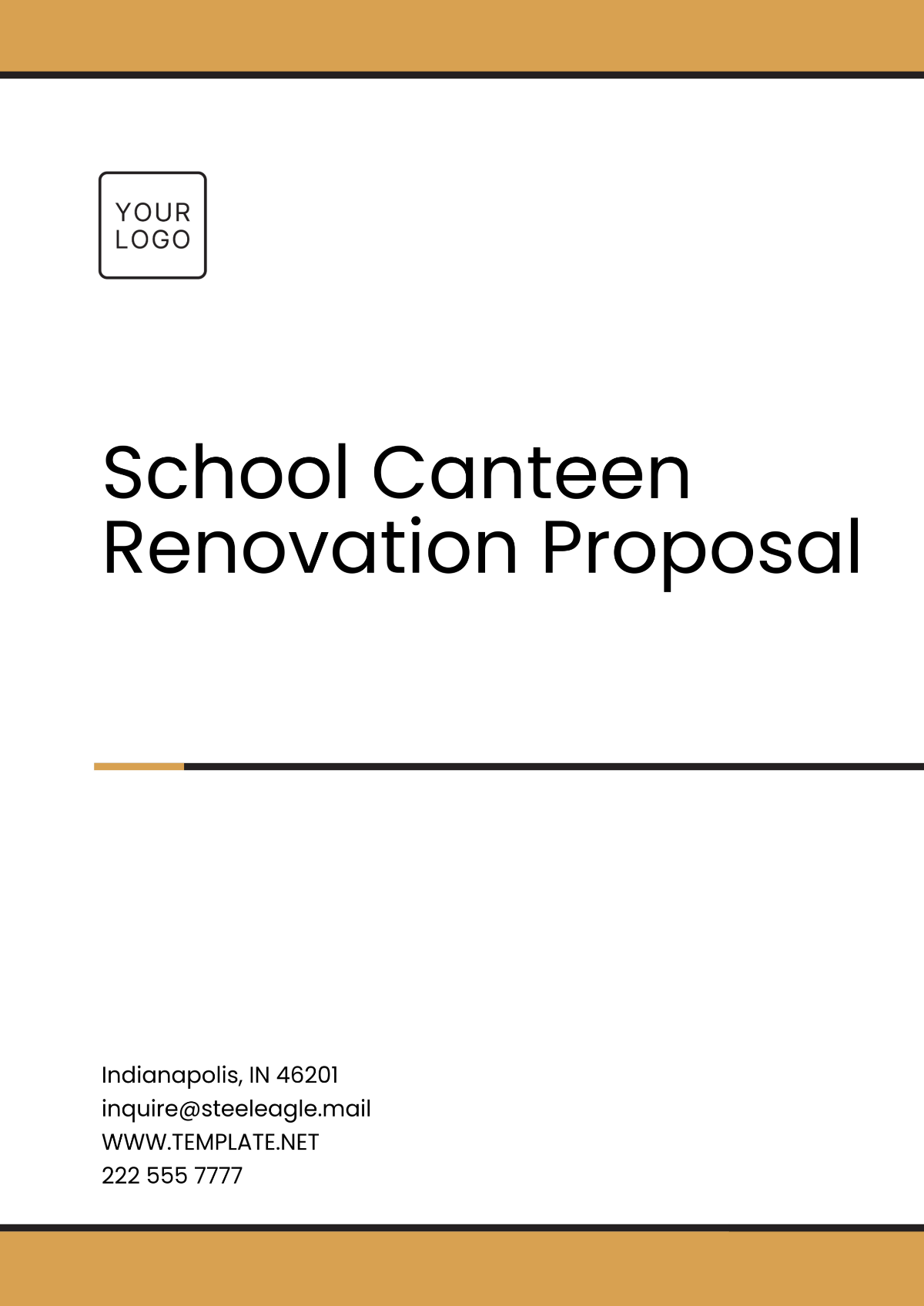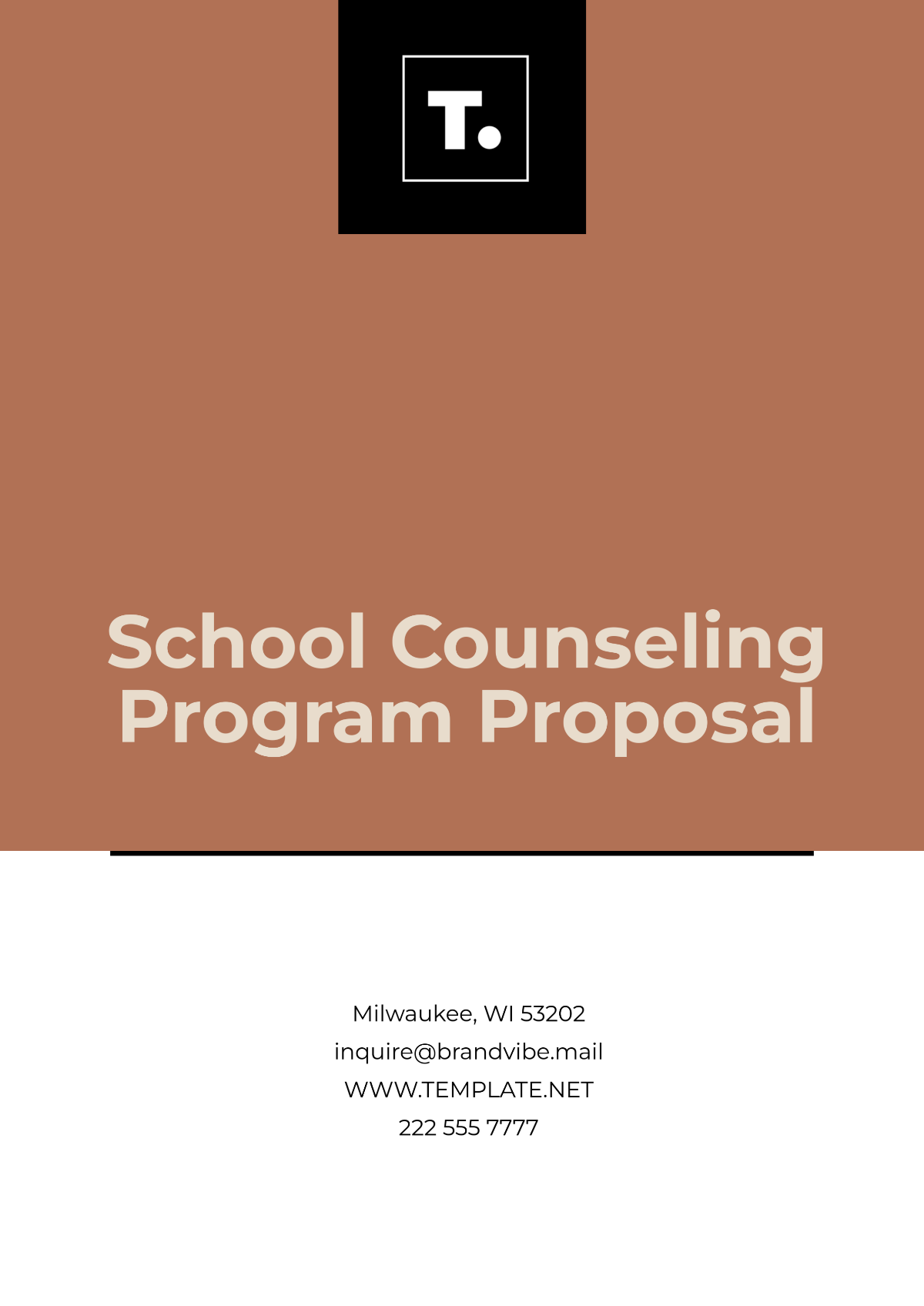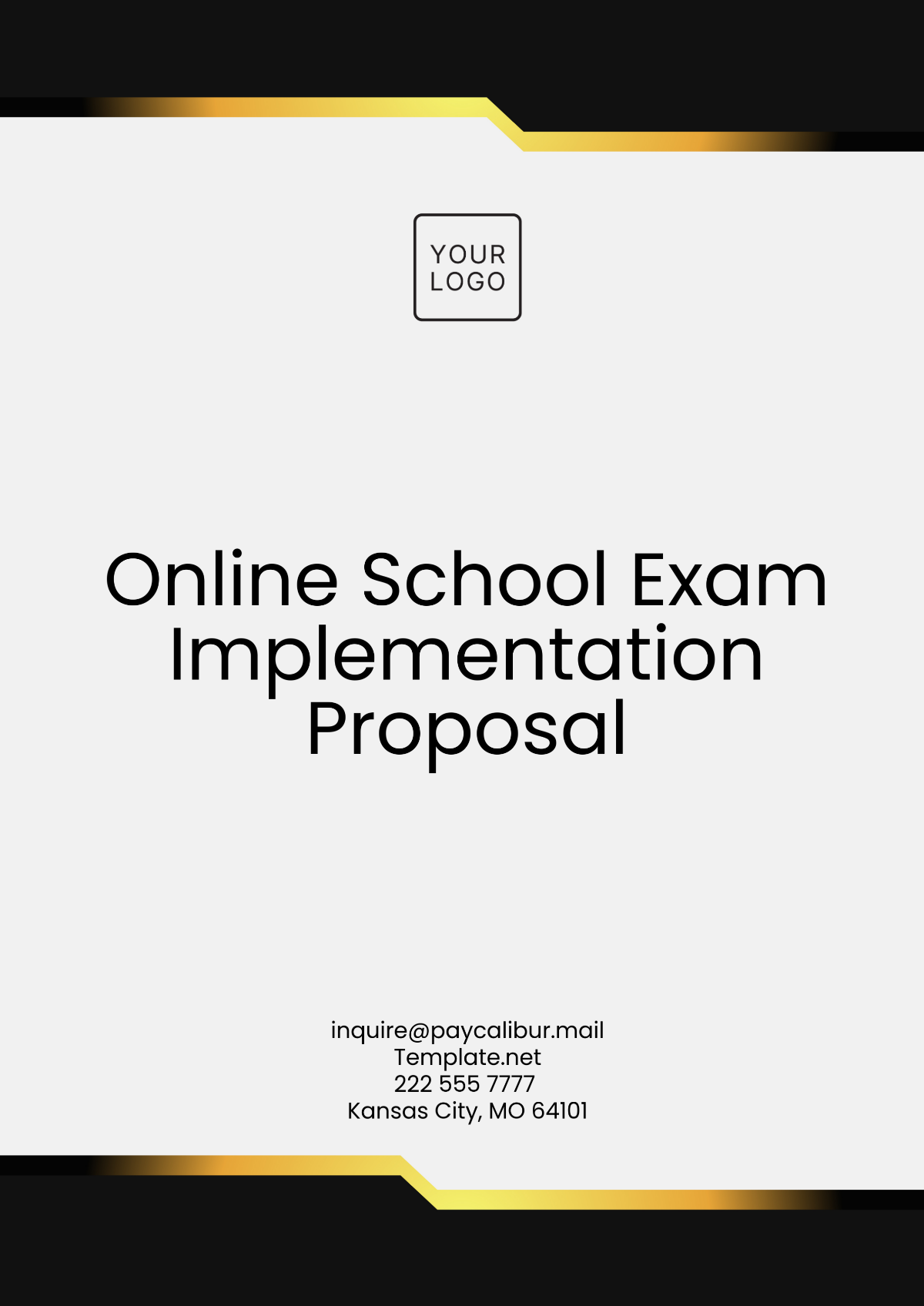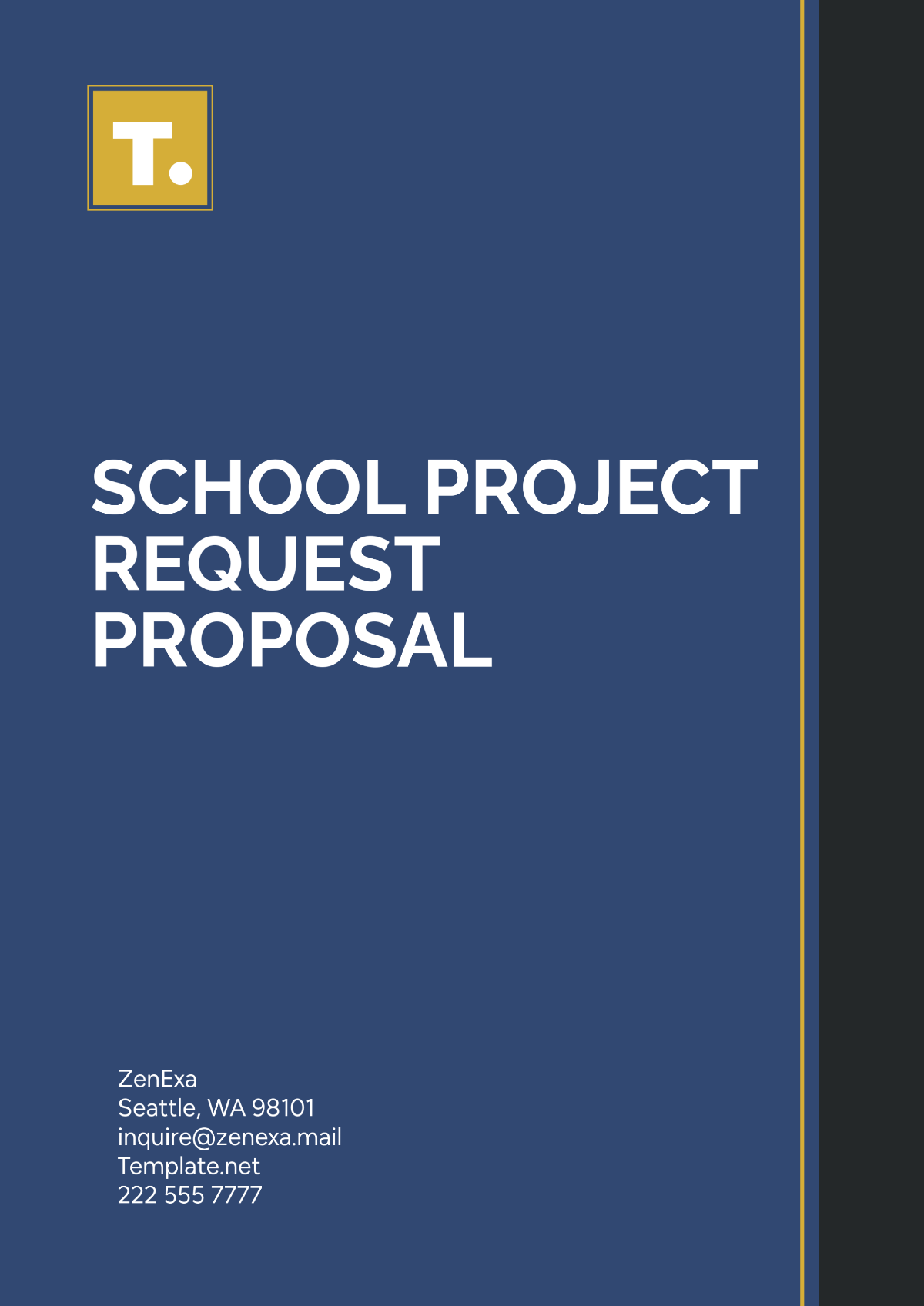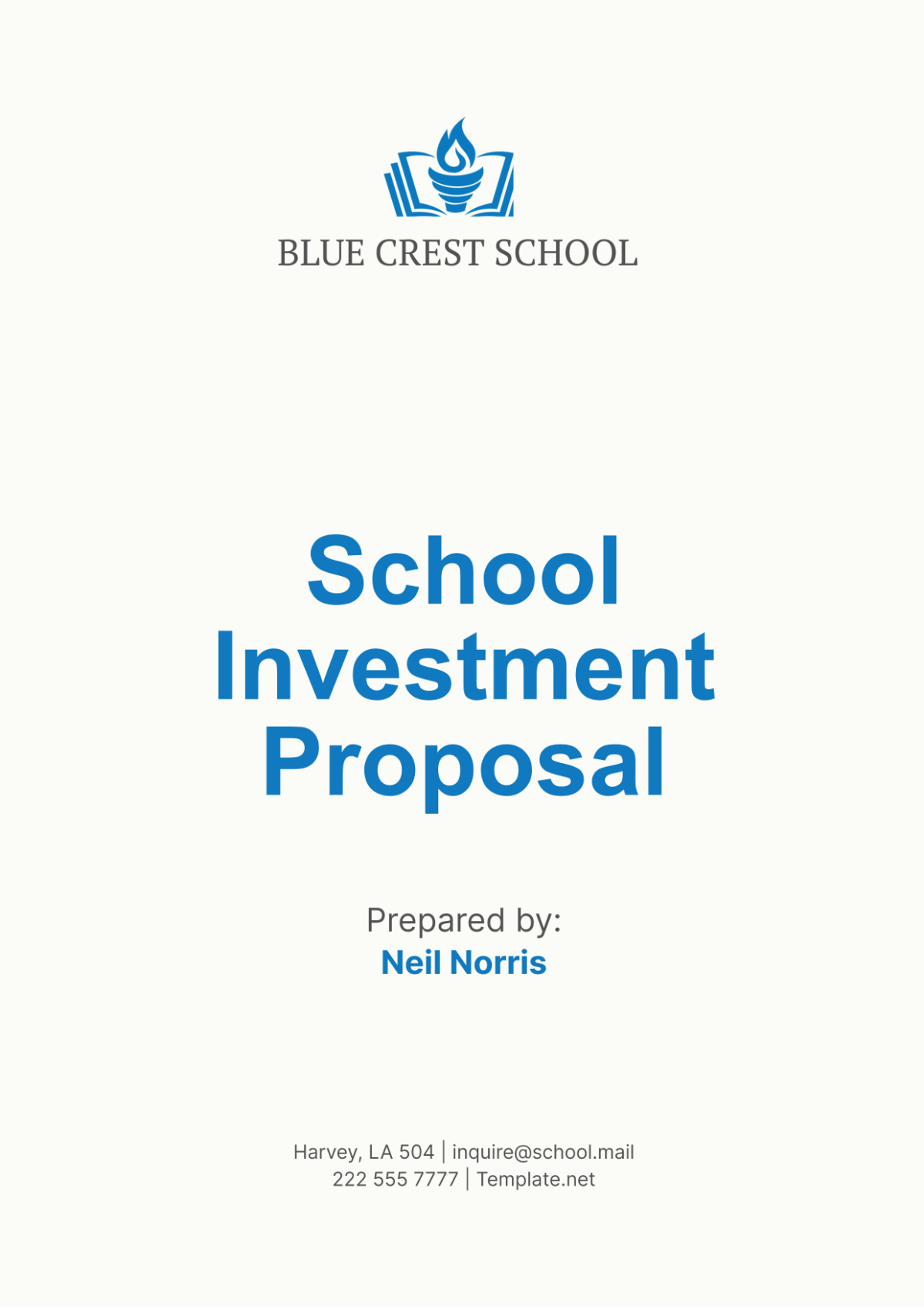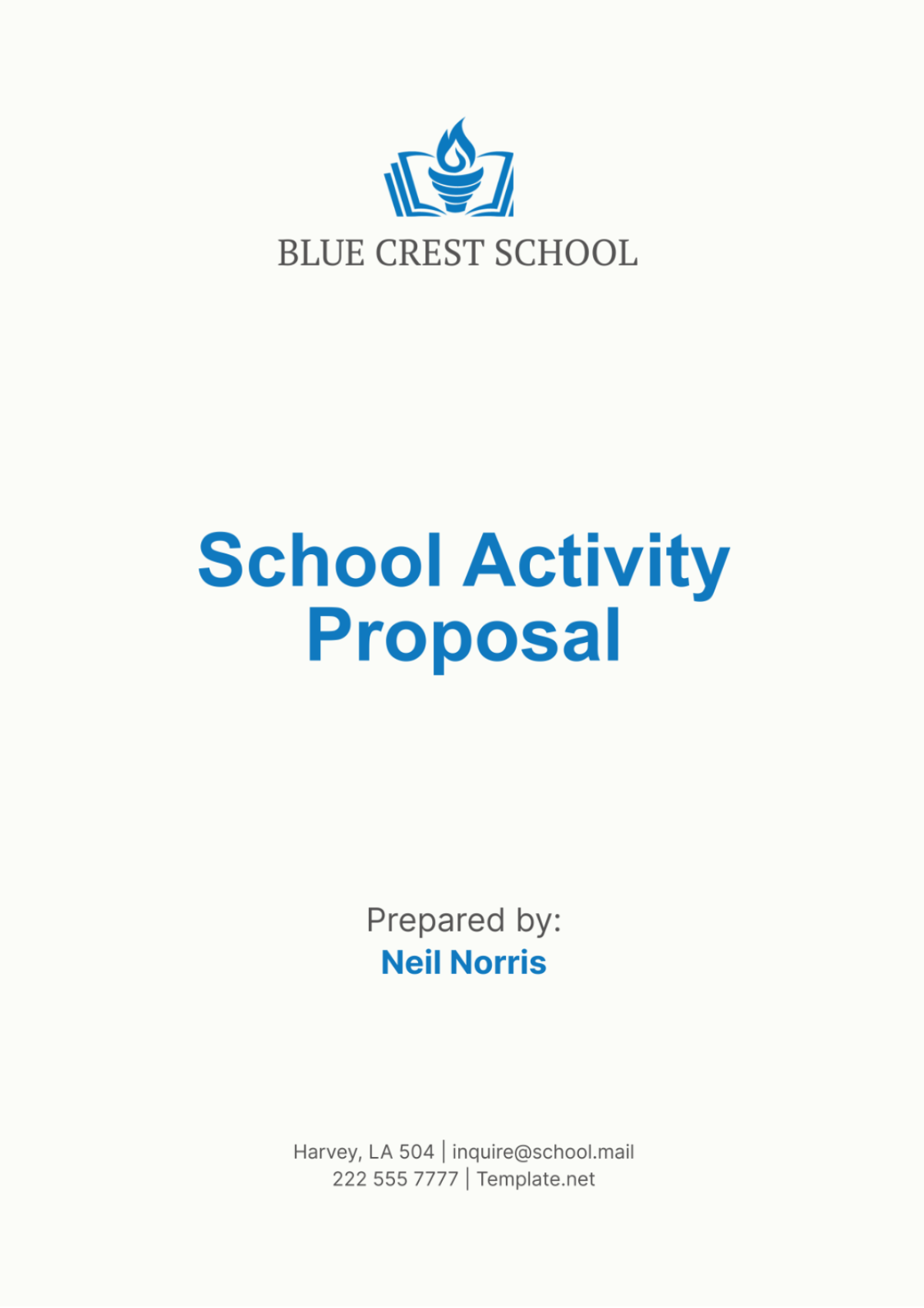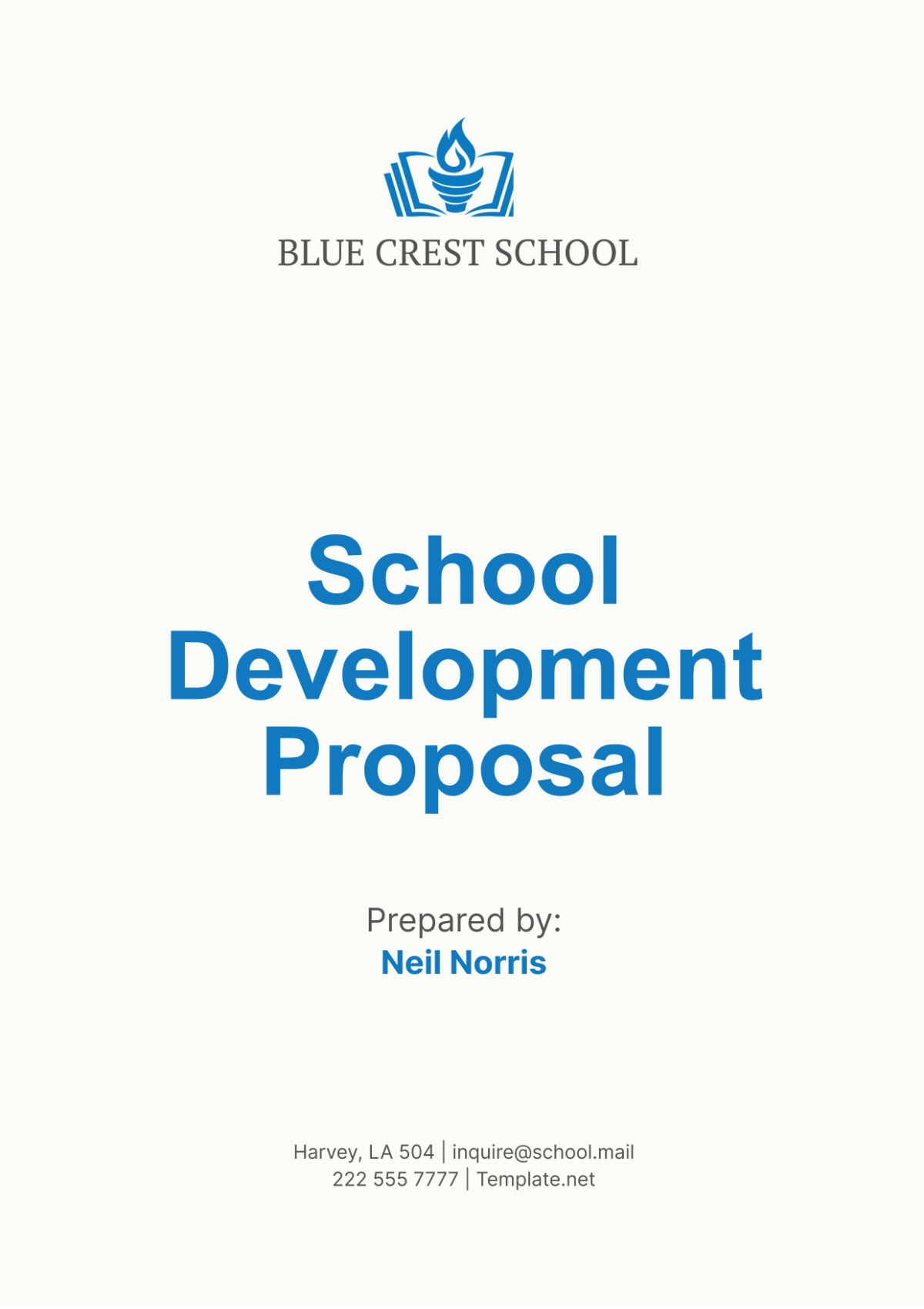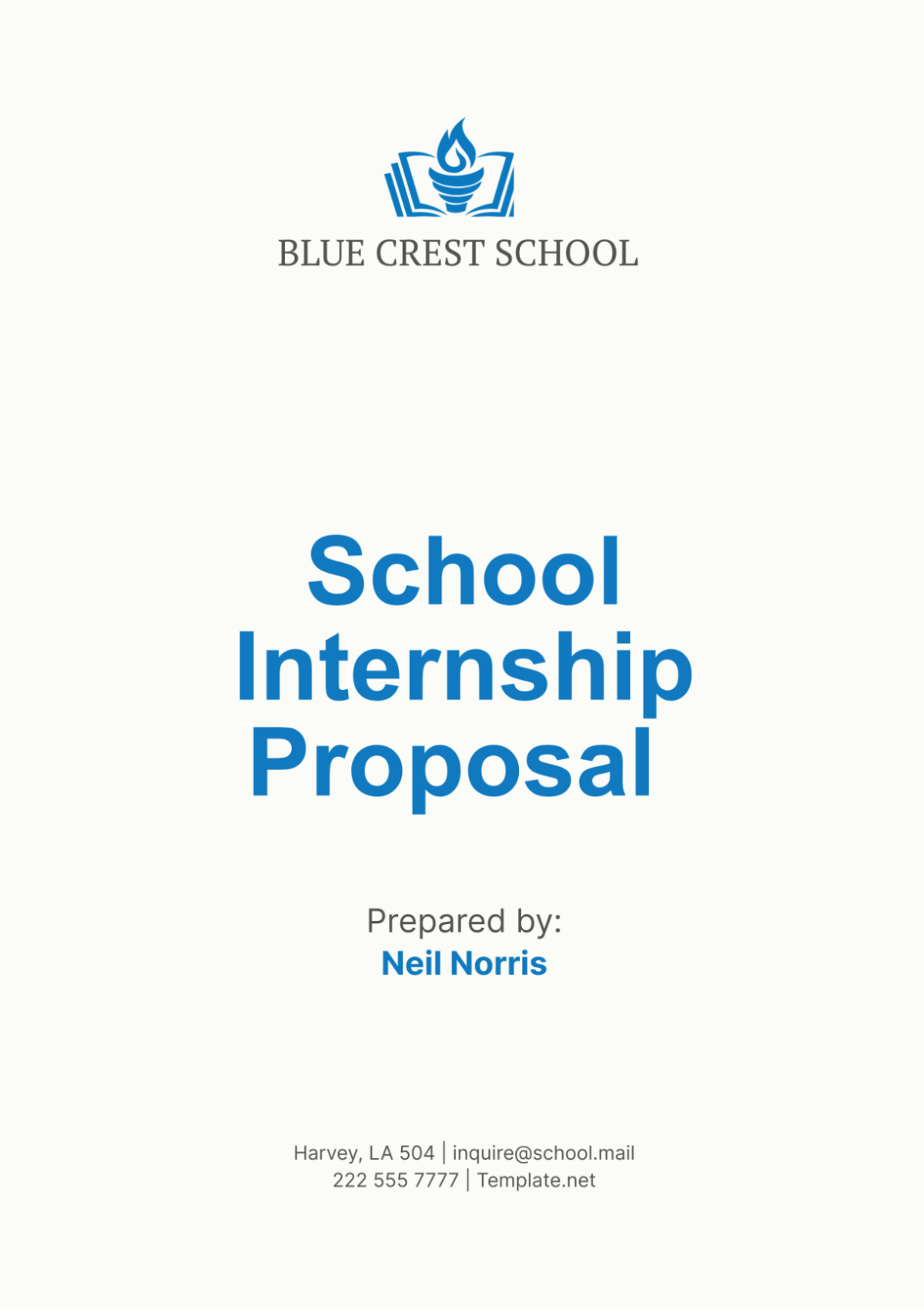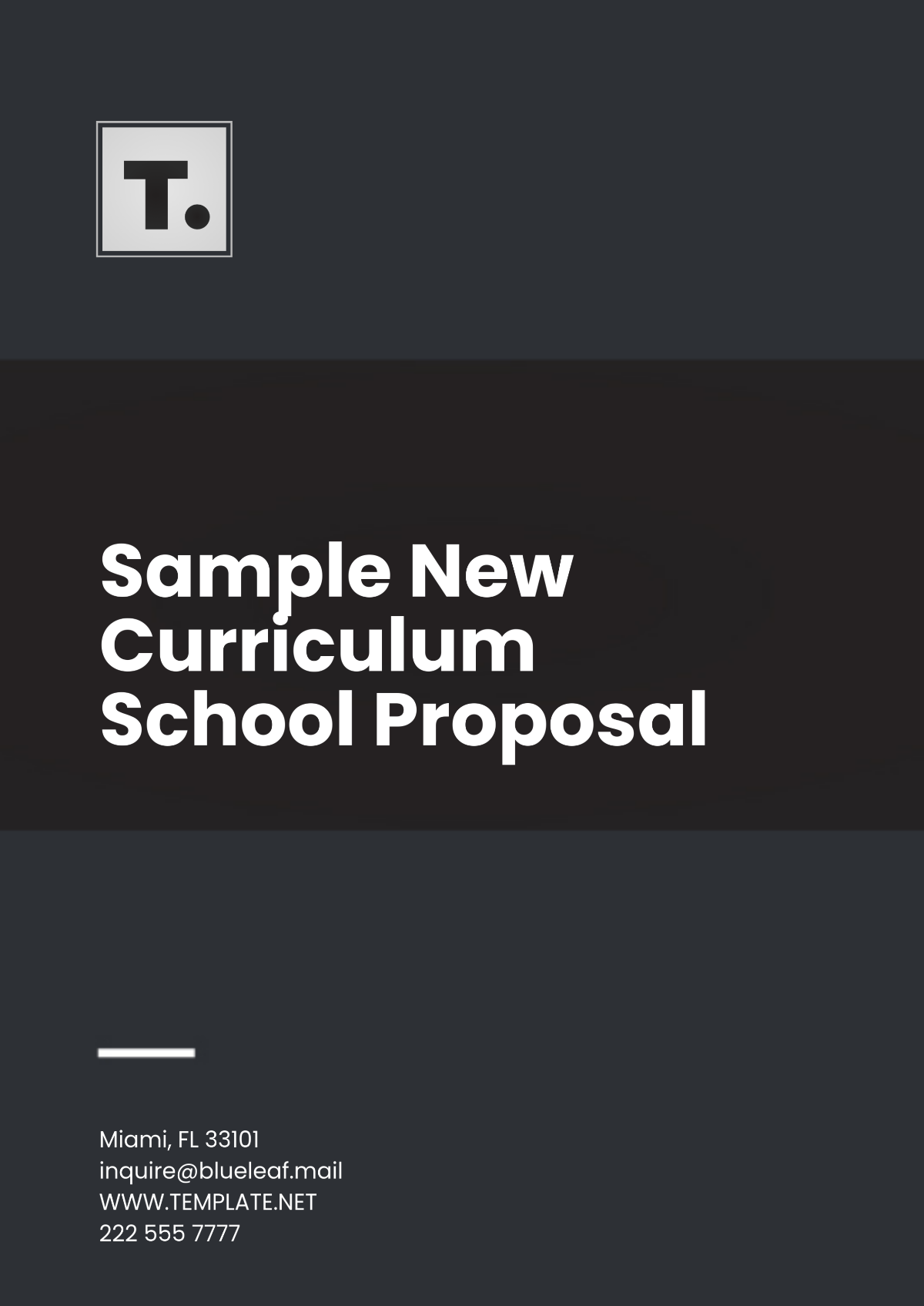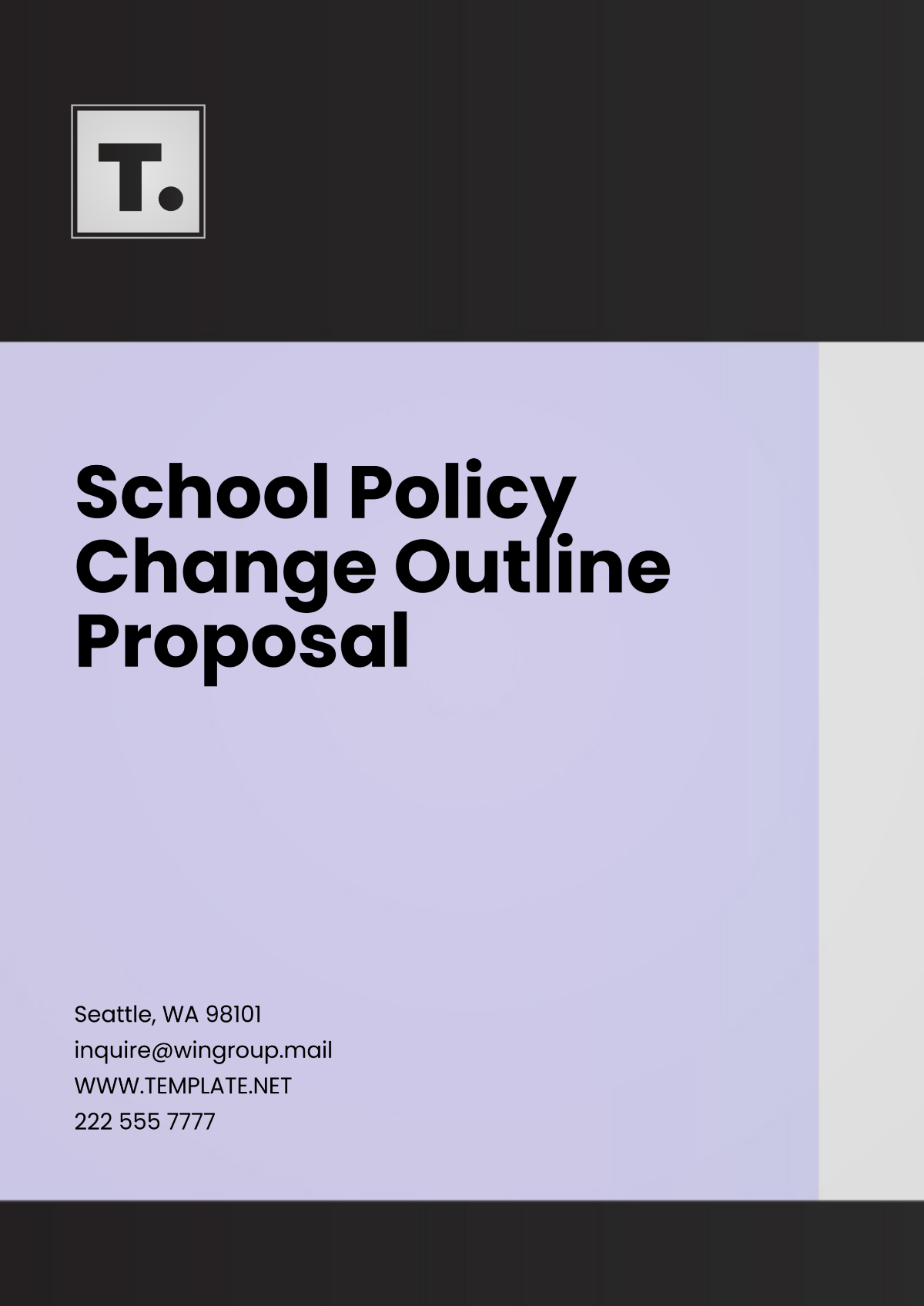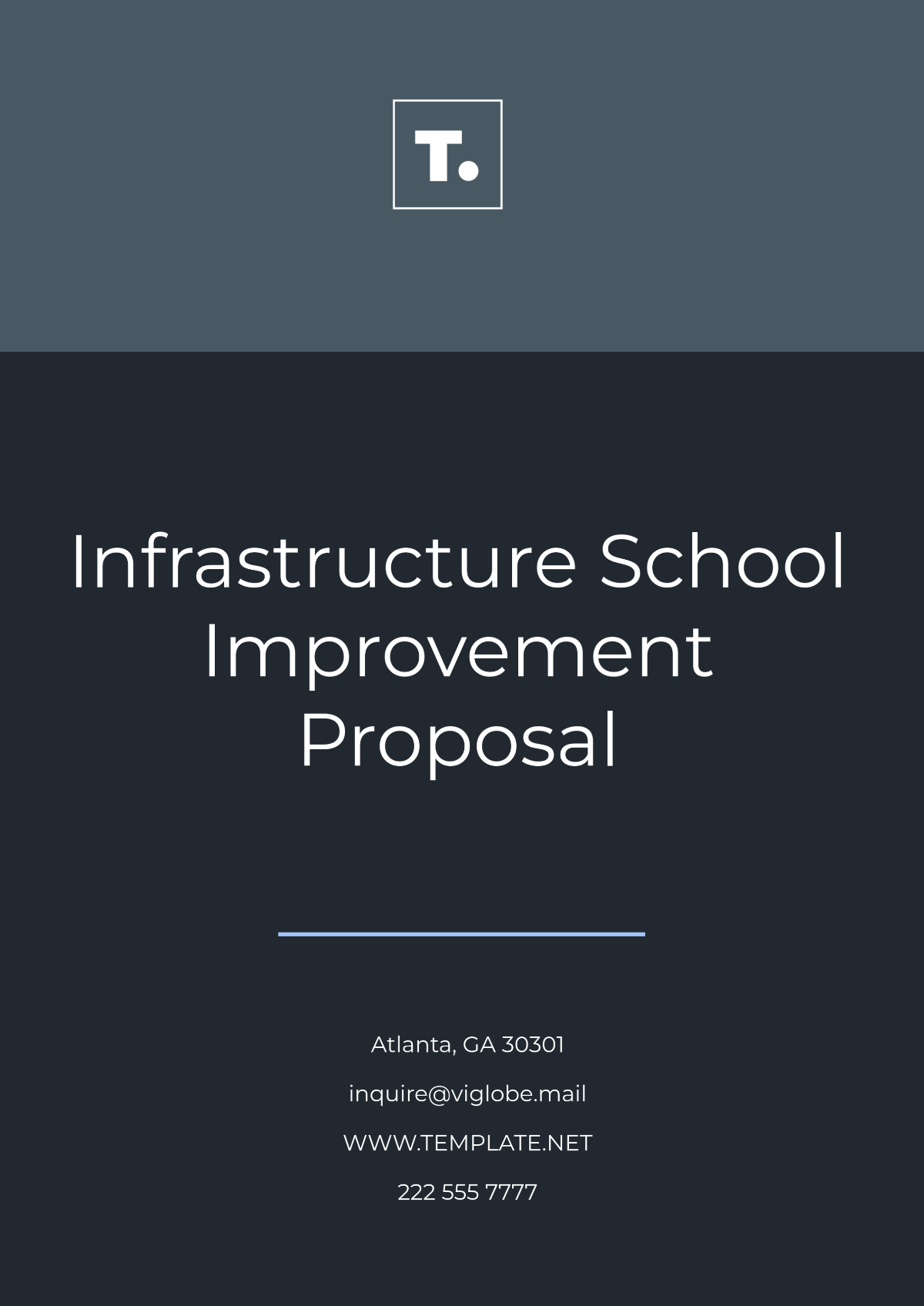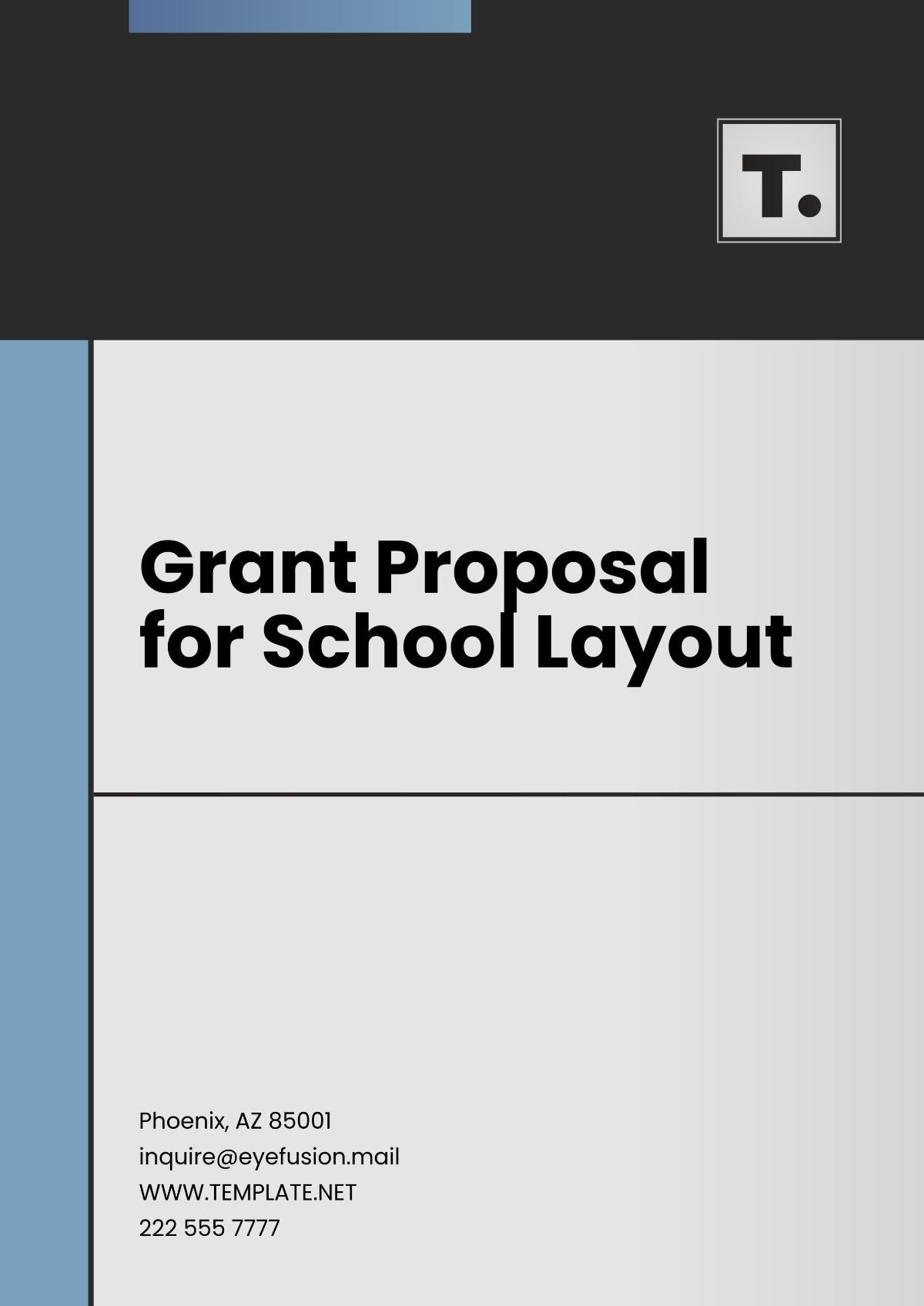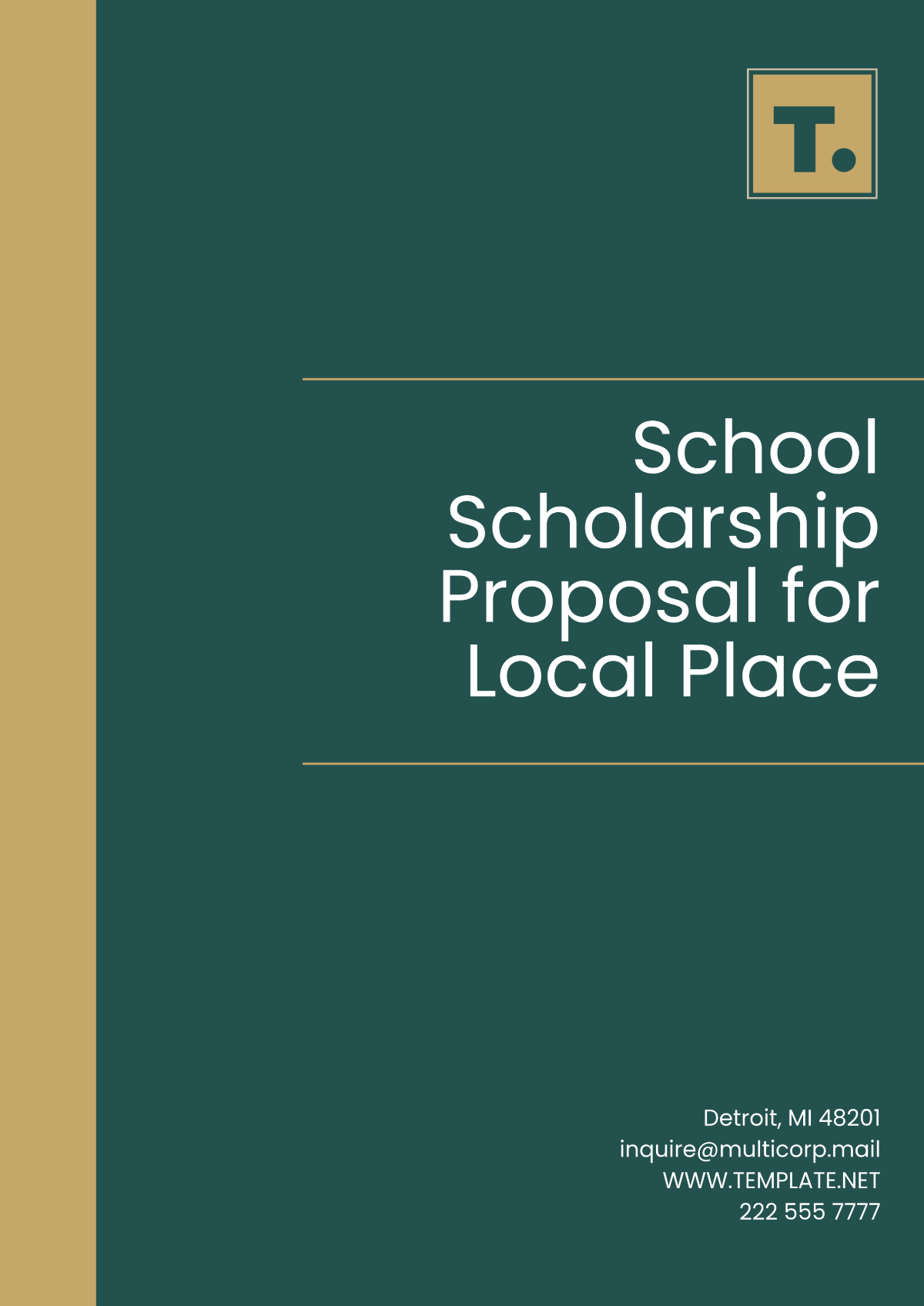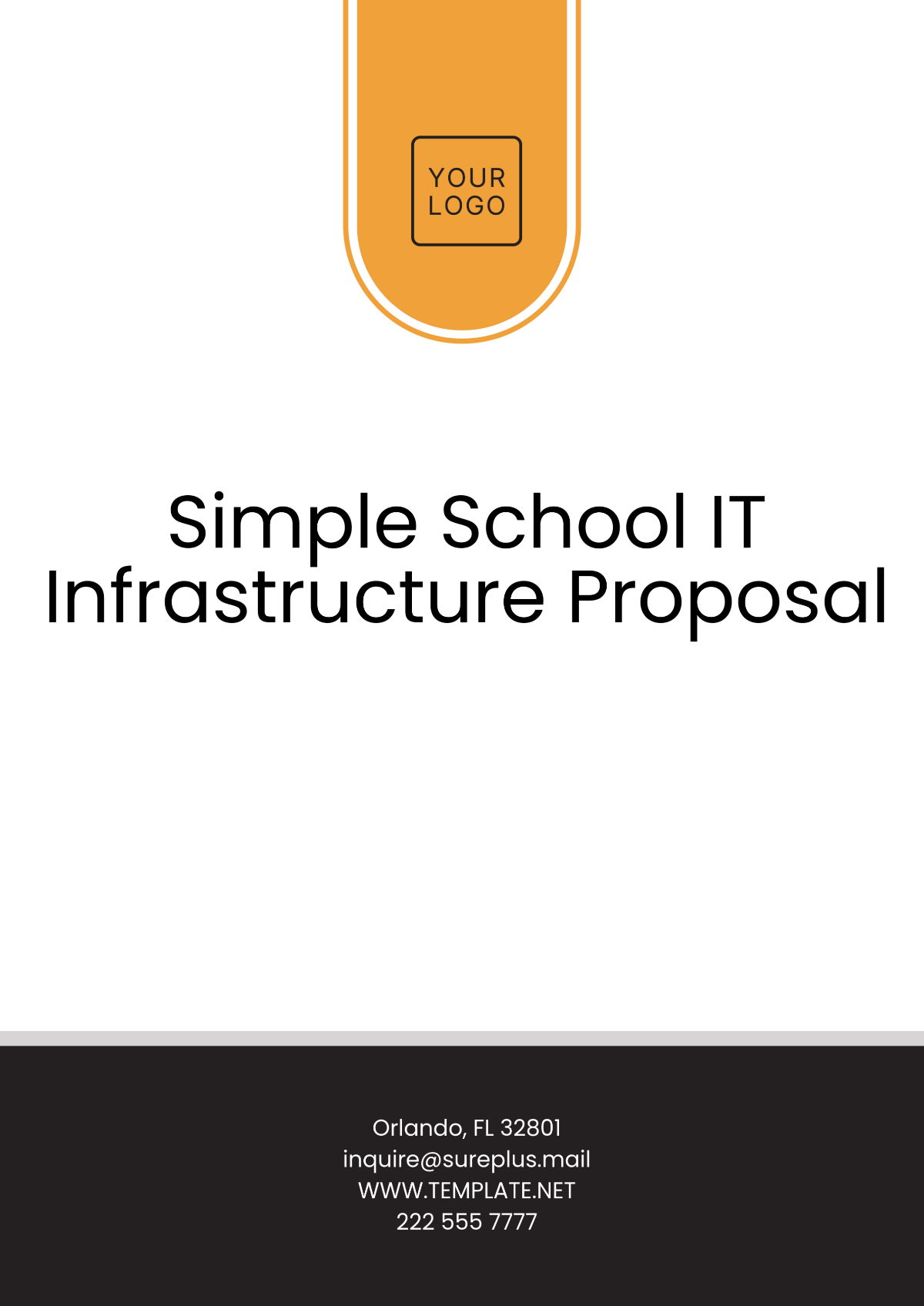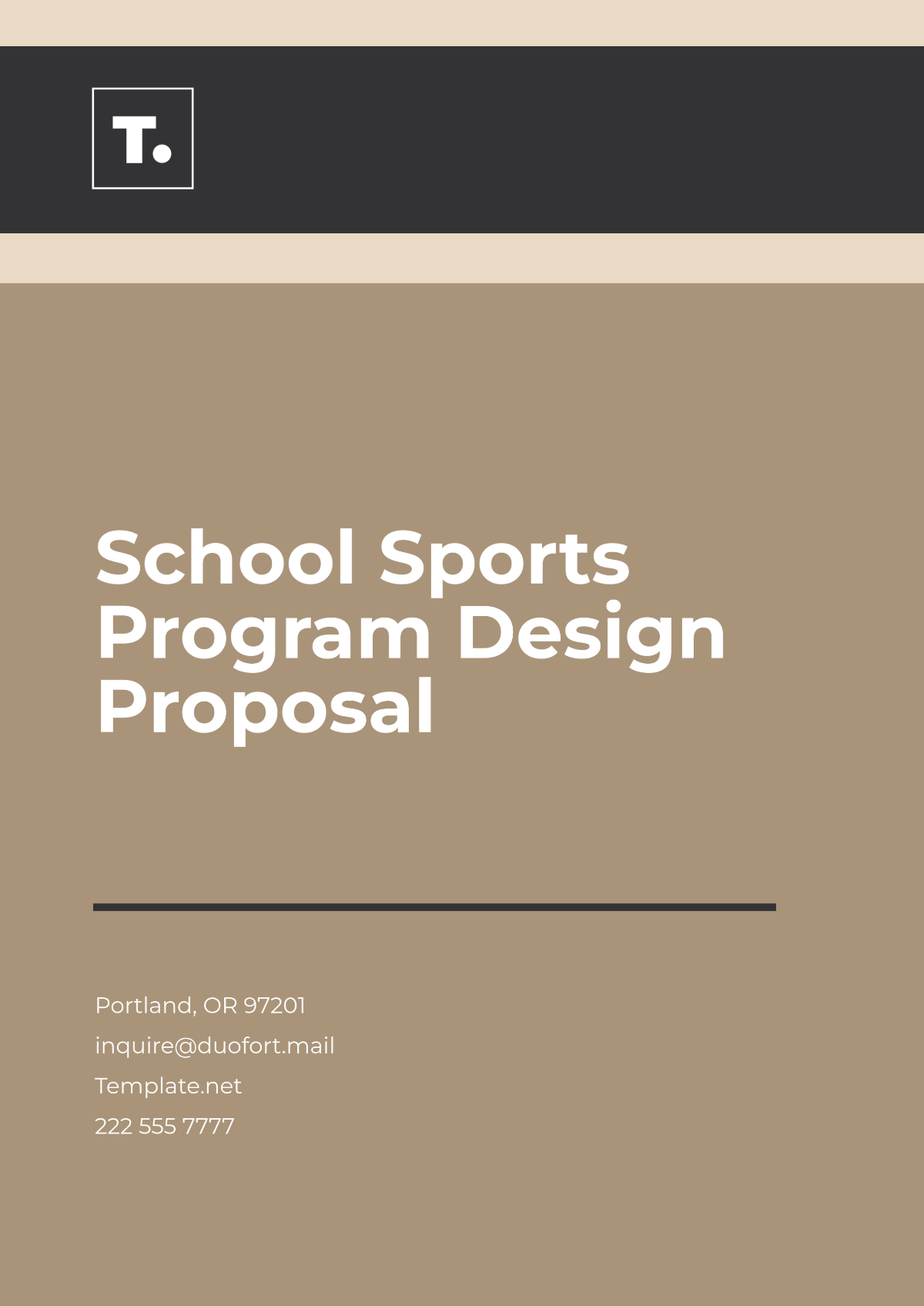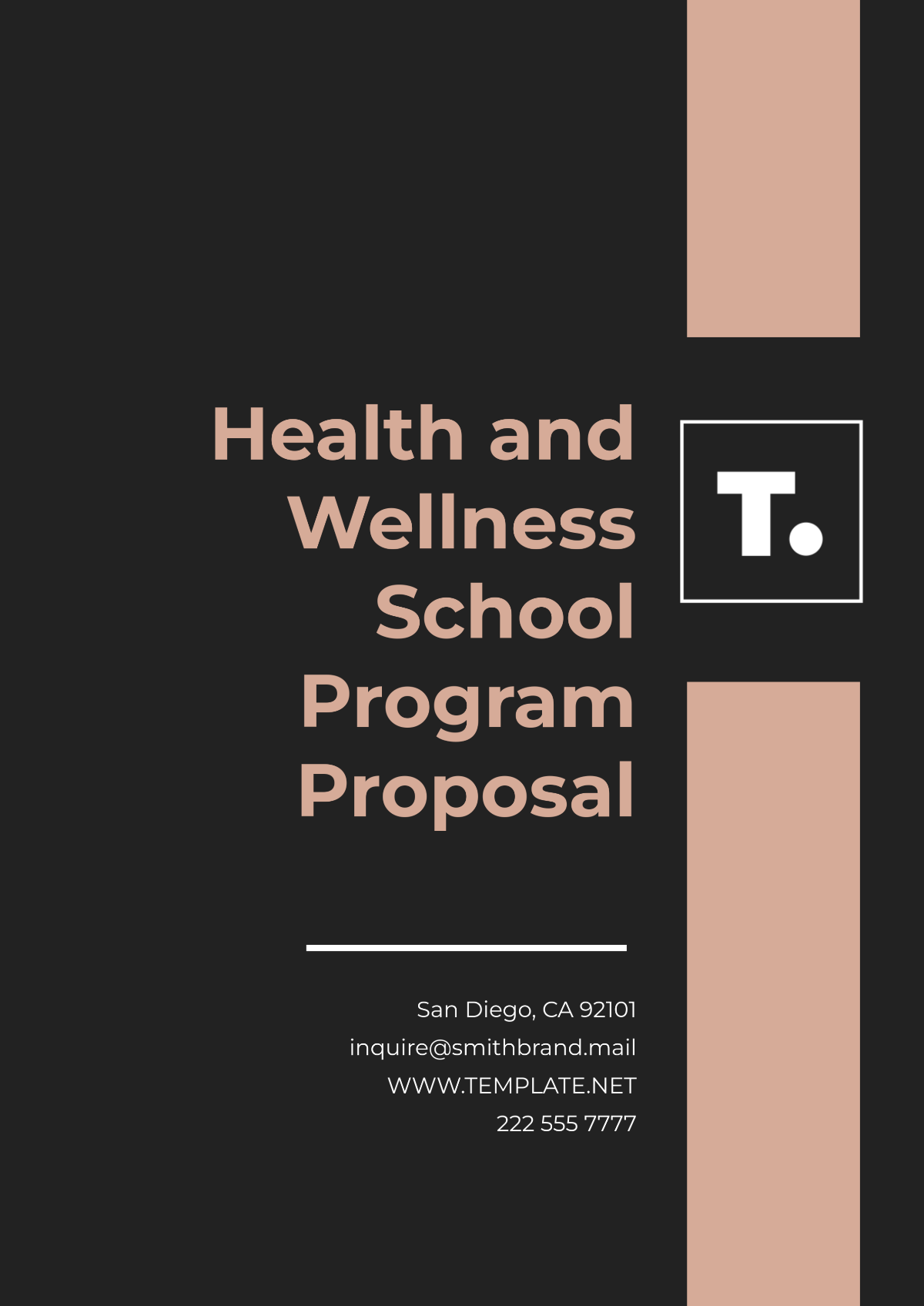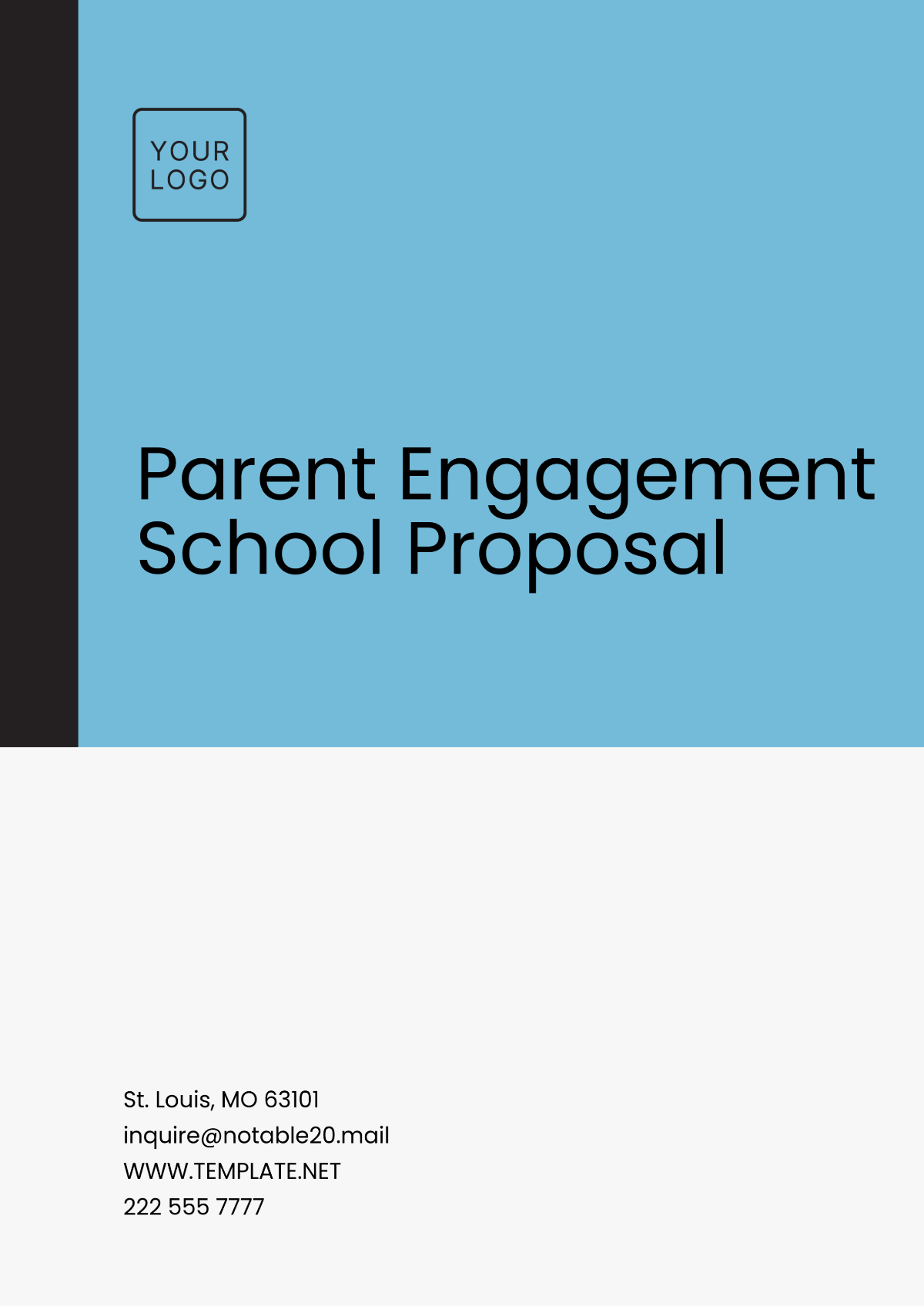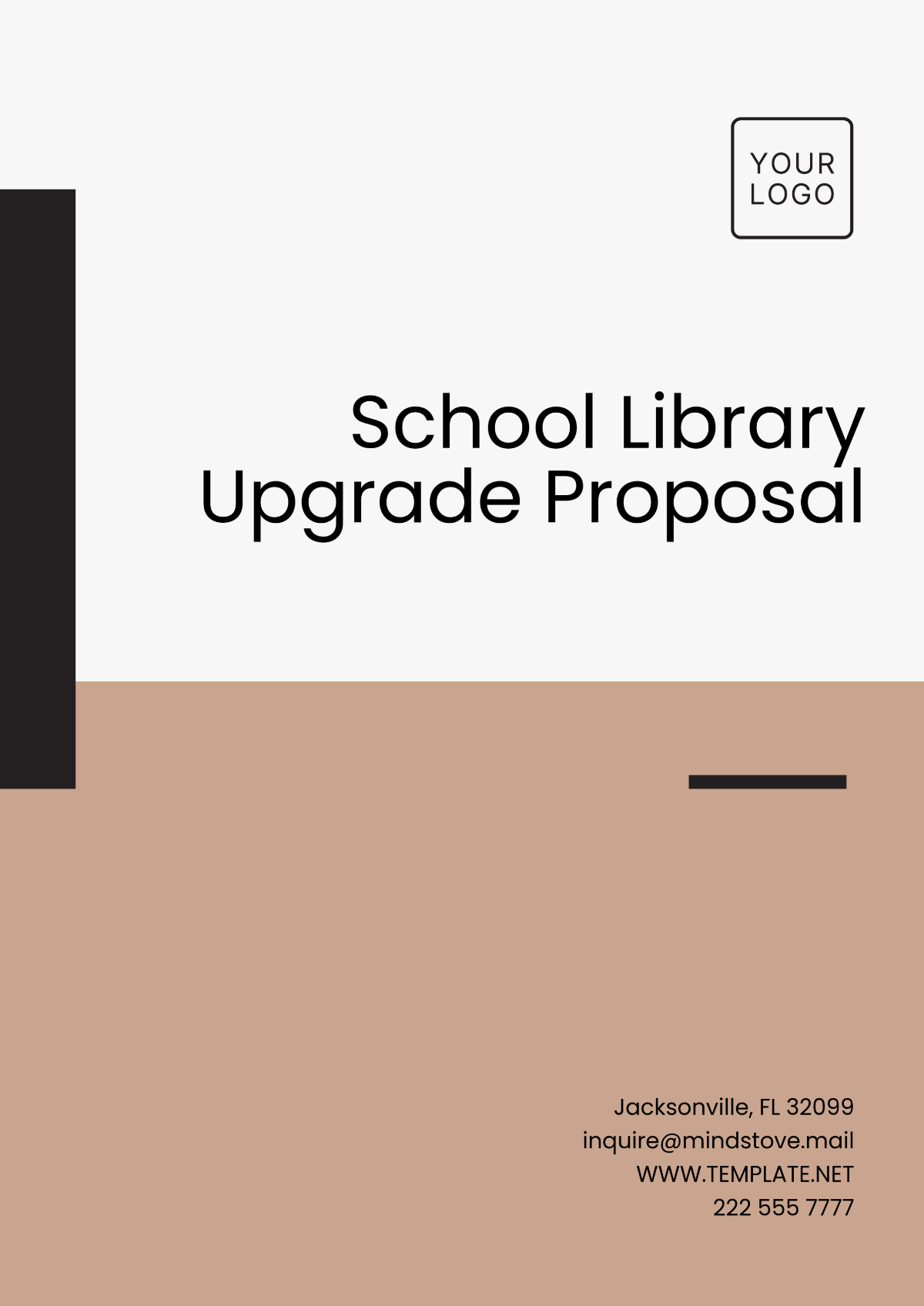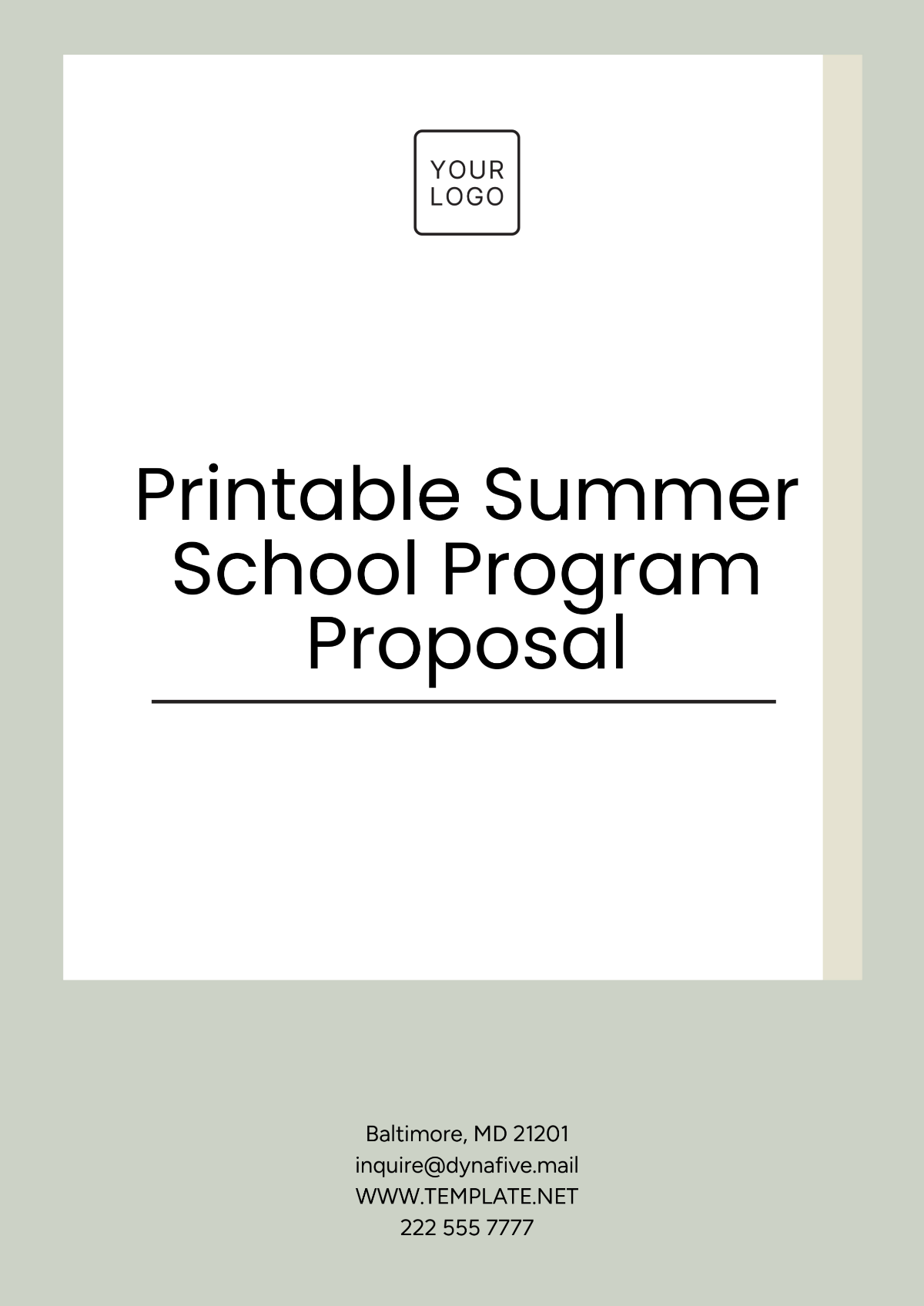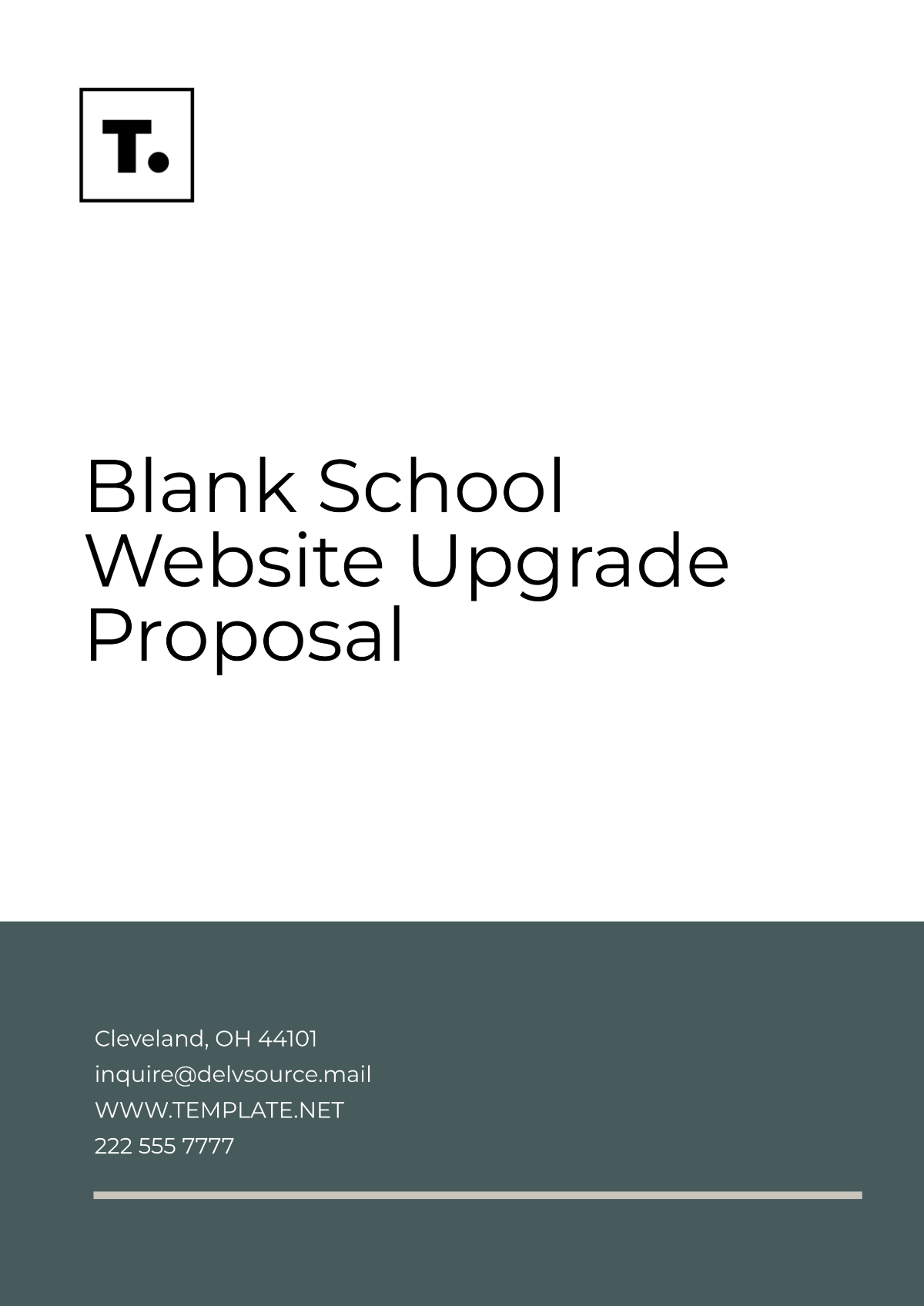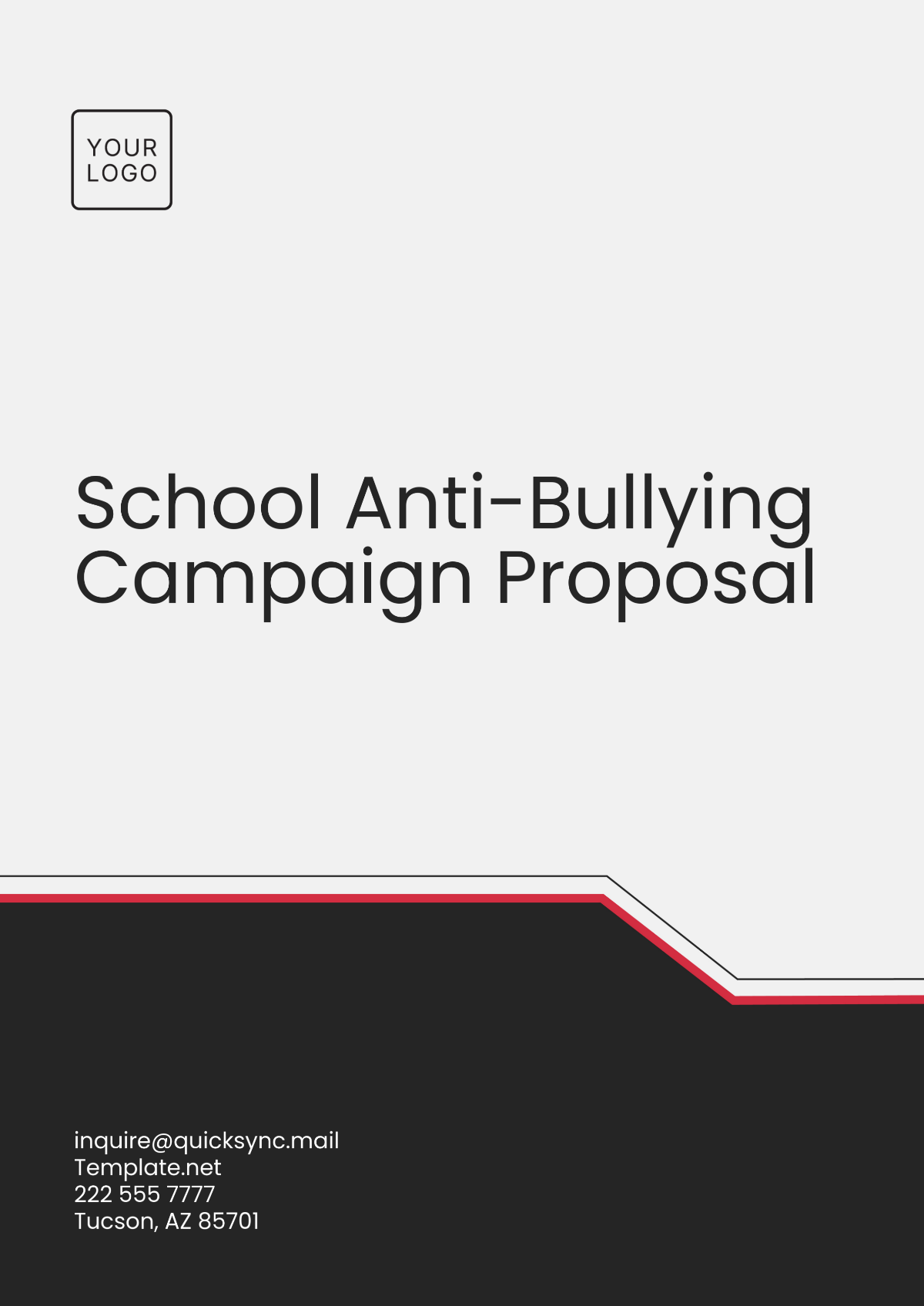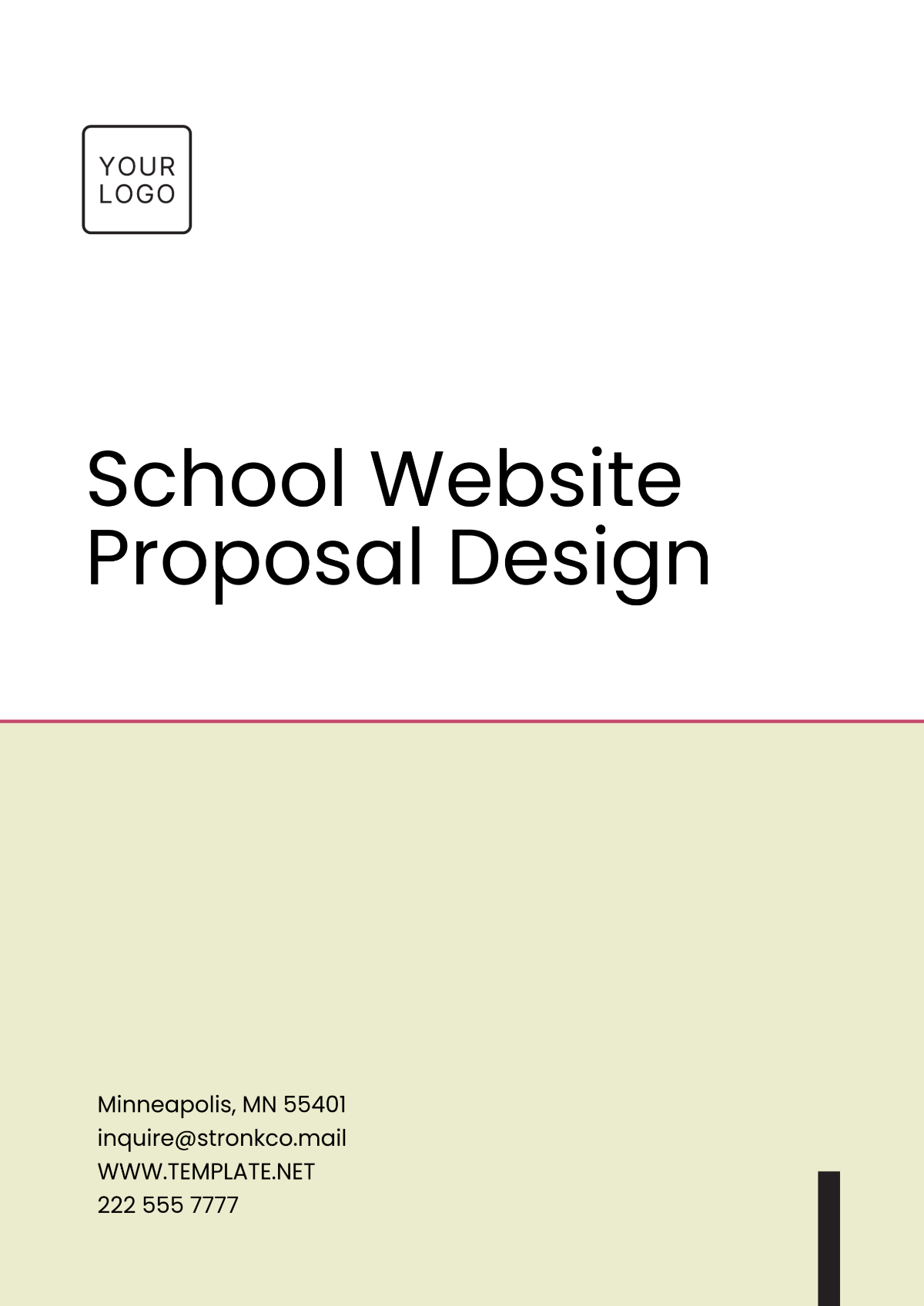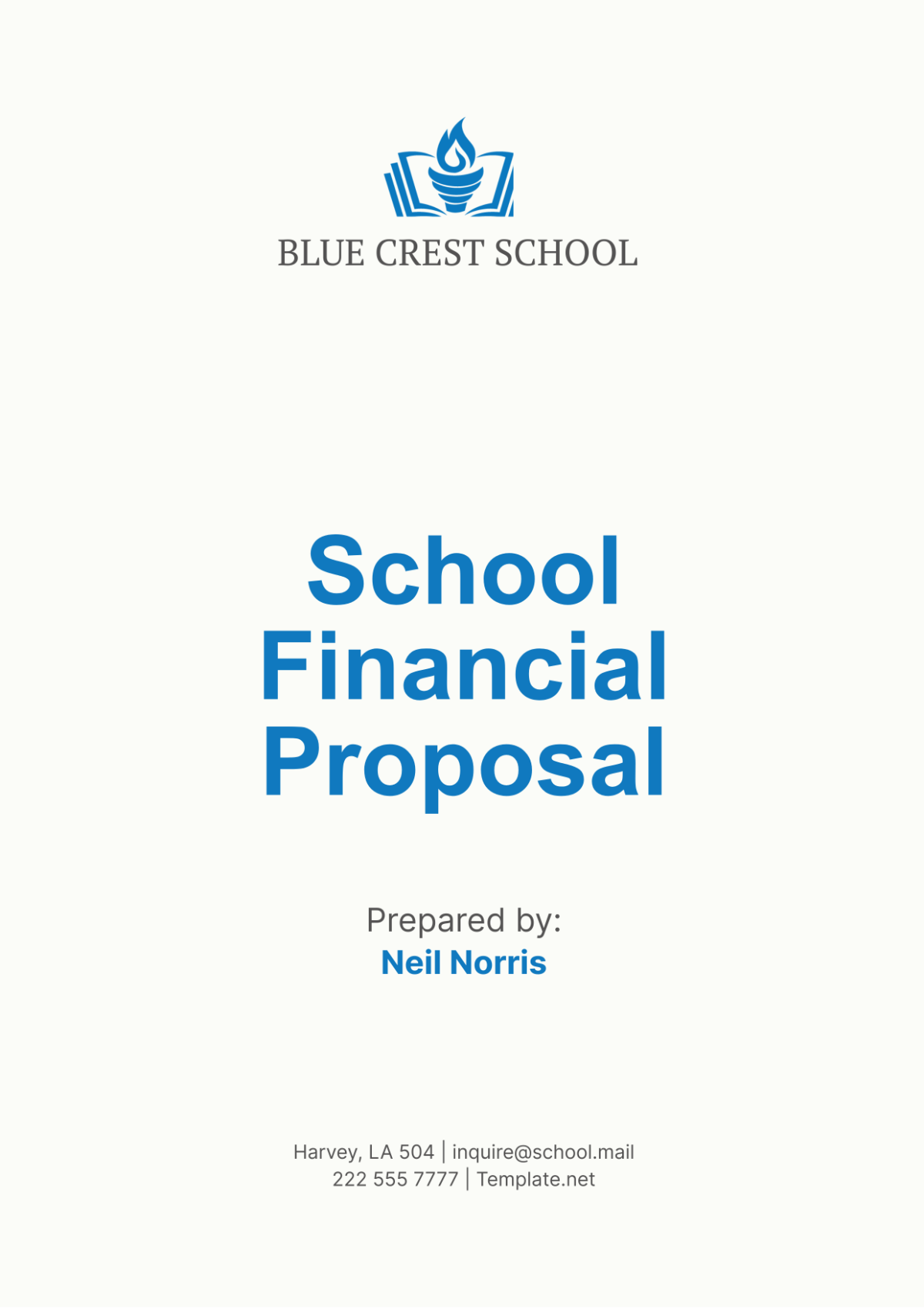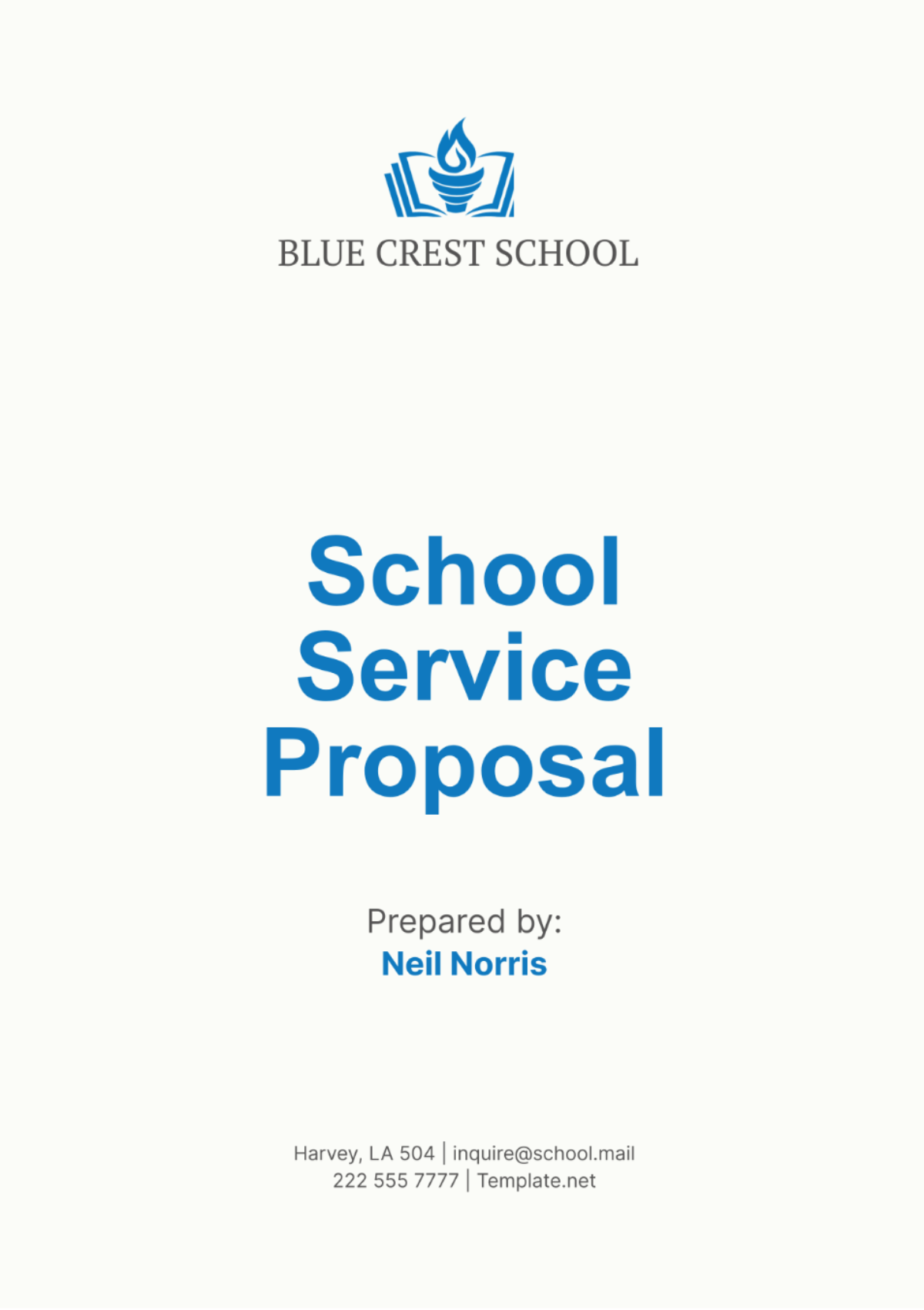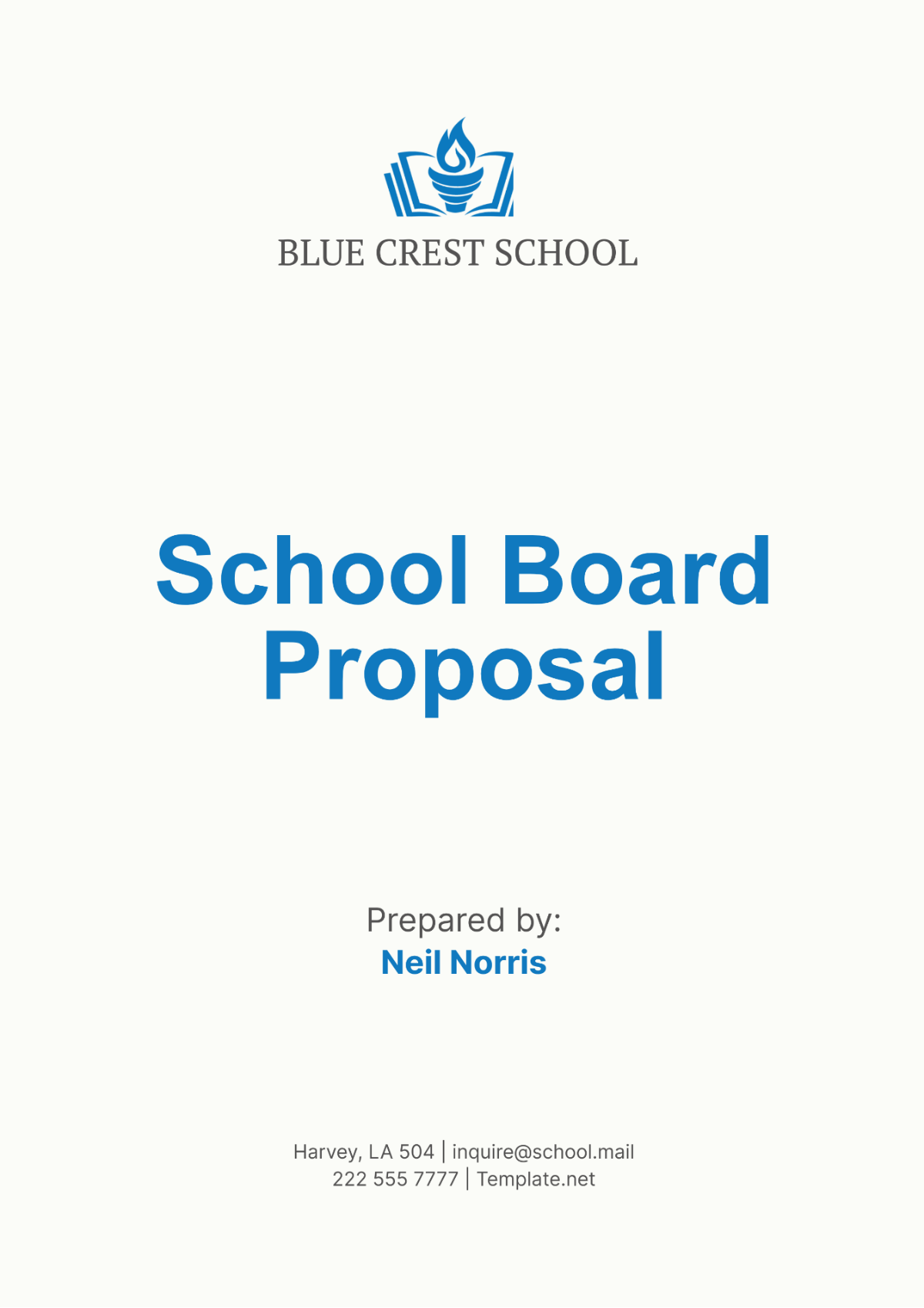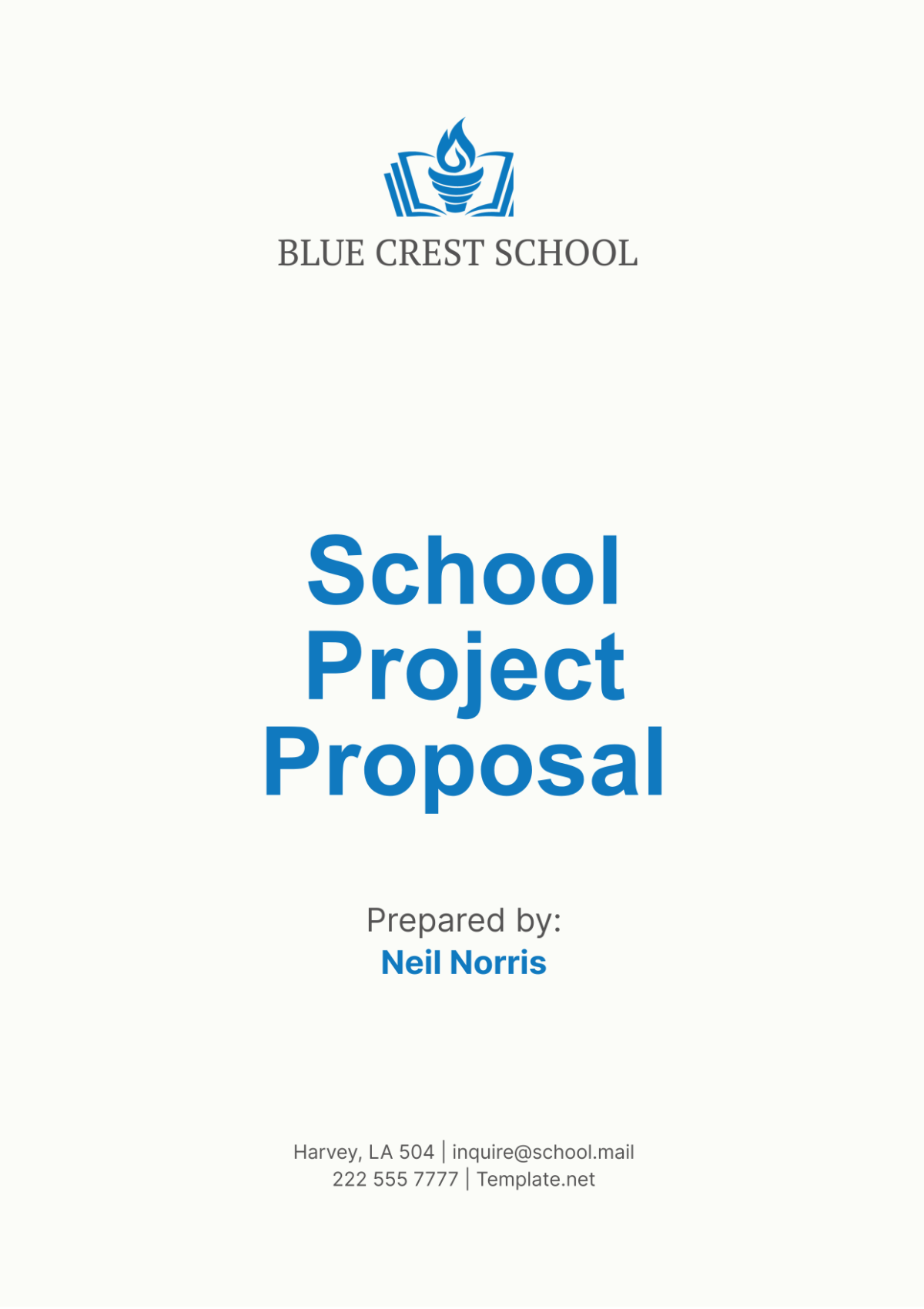School Project Proposal
I. Executive Summary
This school project proposal outlines the purpose, goals, and steps required to execute an educational initiative aimed at enhancing students' learning experiences in [Your Company Name]. The Innovative Educational Workshop Series is designed to introduce new teaching methodologies, enhance student engagement and participation, and improve academic achievements and outcomes. By implementing a series of interactive and hands-on workshops, this project aims to foster a more dynamic and effective learning environment. This proposal seeks to garner support and approval from educational stakeholders and potential sponsors, highlighting the benefits of the initiative and its potential to positively impact students’ educational journeys.
The Innovative Educational Workshop Series will span various subjects, including STEM (Science, Technology, Engineering, and Mathematics), arts, and humanities. Each workshop will be tailored to encourage active participation and critical thinking, thereby making learning more engaging and enjoyable for students. Additionally, the project will include guest lectures from industry professionals and subject matter experts, providing students with valuable insights into real-world applications of their studies.
Overall, this proposal demonstrates a commitment to educational excellence and a vision for a future where students are more engaged, knowledgeable, and prepared for academic and professional success. With the support of stakeholders and sponsors, [Your Company Name] can implement this initiative to create a significant positive impact on the educational experiences of students.
II. Project Introduction
A. Project Title
Innovative Educational Workshop Series
The project title reflects the core focus of the initiative: to provide a series of workshops that introduce innovative teaching methodologies and enhance the educational experience of students. The workshops will be designed to be interactive, hands-on, and led by experienced educators and industry professionals.
B. Project Sponsor
[Your Company Name]
As the project sponsor, [Your Company Name] is dedicated to improving educational outcomes and fostering a culture of continuous learning and improvement. The organization’s commitment to this project underscores its dedication to supporting educational initiatives that benefit students and the broader community.
C. Project Manager
[Your Name], reachable at [Your Email] and [Your Company Number]
The project manager will oversee the planning, execution, and evaluation of the Innovative Educational Workshop Series. With extensive experience in educational project management, [Your Name] will ensure that the project is implemented effectively and achieves its objectives. The project manager will be the primary point of contact for all stakeholders and sponsors, providing regular updates on the project’s progress and addressing any questions or concerns.
III. Objectives
The primary objectives of this project are:
To Introduce New Teaching Methodologies:
Implement innovative approaches such as project-based learning, collaborative learning, and technology-enhanced instruction. These methodologies are designed to make learning more interactive and relevant to students, fostering a deeper understanding of the material and encouraging critical thinking skills.
Project-Based Learning: Students will engage in projects that require them to apply their knowledge to real-world problems, promoting active learning and collaboration.
Collaborative Learning: Group activities will encourage students to work together, share ideas, and learn from one another, enhancing their communication and teamwork skills.
Technology-Enhanced Instruction: The use of digital tools and resources will be integrated into the workshops to provide a more dynamic and engaging learning experience.
To Enhance Student Engagement and Participation:
Develop interactive and hands-on activities that make learning more engaging and enjoyable for students. These activities are designed to capture students’ interest and motivate them to participate actively in their learning.
Interactive Workshops: Students will participate in workshops that involve active learning techniques, such as discussions, problem-solving activities, and interactive simulations.
Hands-On Activities: Practical exercises and experiments will allow students to apply what they have learned in a tangible way, reinforcing their understanding of the material.
To Improve Academic Achievements and Outcomes:
Track and measure the impact of these workshops on students' academic performance and overall learning experience. By assessing the effectiveness of the workshops, we can identify areas for improvement and ensure that the project is achieving its intended goals.
Pre- and Post-Workshop Assessments: Students’ knowledge and skills will be assessed before and after each workshop to measure their learning gains.
Feedback and Reflection: Students will provide feedback on the workshops and reflect on their learning experiences, allowing us to continually refine and improve the program.
IV. Project Scope
A. Target Audience
The workshop series will target students aged 12-18 within schools affiliated with [Your Company Name] and its partners. The aim is to reach a diverse group of students, including those from different socio-economic backgrounds and academic levels. By catering to a wide audience, the project seeks to provide equitable educational opportunities and support the development of all students.
Age Group: Students aged 12-18, covering middle school and high school students.
Affiliated Schools: Schools that are part of [Your Company Name] network and its partners.
Diverse Backgrounds: Students from various socio-economic backgrounds and academic levels, ensuring inclusivity and broad reach.
B. Project Activities
The project will include the following activities, each designed to achieve the project’s objectives and provide a comprehensive learning experience for students:
Interactive Workshops
Workshops will cover various subjects, including STEM (Science, Technology, Engineering, and Mathematics), arts, and humanities. Each session will be designed to encourage active participation and critical thinking, making learning more engaging and enjoyable for students.
STEM Workshops: Topics may include coding, robotics, environmental science, and mathematics.
Arts Workshops: Topics may include creative writing, visual arts, music, and drama.
Humanities Workshops: Topics may include history, social studies, and cultural studies.
Hands-On Activities
Students will engage in practical exercises and experiments to apply what they have learned in the workshops. These activities will reinforce their understanding of the material and provide opportunities for experiential learning.
Science Experiments: Conducting experiments to understand scientific concepts and principles.
Art Projects: Creating artwork based on themes explored in the workshops.
Technical Projects: Building models, prototypes, or using technology to solve problems.
Guest Lectures
Industry professionals and subject matter experts will be invited to share their knowledge and experiences with the students. These lectures will provide students with valuable insights into real-world applications of their studies and inspire them to pursue their interests further.
STEM Professionals: Engineers, scientists, and technologists sharing their experiences and knowledge.
Artists and Creatives: Musicians, writers, and artists discussing their creative processes and careers.
Humanities Experts: Historians, sociologists, and cultural analysts providing deeper insights into their fields.
Project Activities Breakdown
Activity | Description | Frequency |
|---|---|---|
Interactive Workshops | Sessions covering various subjects with interactive participation | Monthly |
Hands-on Activities | Practical exercises and experiments related to workshop topics | Bi-monthly |
Guest Lectures | Lectures by industry professionals and subject matter experts | Quarterly |
Each of these activities is integral to the success of the Innovative Educational Workshop Series, providing a balanced mix of theoretical knowledge and practical application. By engaging students through a variety of learning experiences, the project aims to foster a deeper understanding and appreciation of the subjects being taught.
V. Timeline
The project will be executed over a timeline starting from January 2050 to December 2050, encompassing multiple workshop sessions. The detailed timeline is as follows:
Project Timeline
Month | Activity | Details |
|---|---|---|
January 2050 | Project Kickoff | Initial planning and resource allocation |
February 2050 | Workshop 1 | STEM-focused interactive workshop |
March 2050 | Hands-on Activity 1 | Practical exercise related to Workshop 1 |
April 2050 | Guest Lecture 1 | Lecture by a STEM industry professional |
May 2050 | Workshop 2 | Arts and humanities-focused interactive workshop |
June 2050 | Hands-on Activity 2 | Practical exercise related to Workshop 2 |
July 2050 | Workshop 3 | Technology and engineering-focused interactive workshop |
August 2050 | Hands-on Activity 3 | Practical exercise related to Workshop 3 |
September 2050 | Guest Lecture 2 | Lecture by a technology industry professional |
October 2050 | Workshop 4 | Collaborative learning and problem-solving workshop |
November 2050 | Hands-on Activity 4 | Practical exercise related to Workshop 4 |
December 2050 | Project Evaluation | Assessment of project impact and compilation of final reports |
VI. Budget
The estimated budget for this project is $50,000, which will cover materials, facilitators' fees, venue costs, and promotional materials. The budget breakdown is as follows:
Budget Breakdown
Expense Category | Details | Amount ($) |
|---|---|---|
Materials | Educational materials, supplies, equipment | 10,000 |
Facilitators' Fees | Payment for workshop facilitators | 15,000 |
Venue Costs | Rental fees for workshop locations | 8,000 |
Promotional Materials | Flyers, banners, online marketing | 5,000 |
Administrative Expenses | Miscellaneous administrative costs | 2,000 |
Contingency Fund | Reserve for unforeseen expenses | 10,000 |
Total | 50,000 |
VII. Evaluation
The evaluation process is a critical component of the Innovative Educational Workshop Series, designed to measure the effectiveness of the project and ensure it meets its objectives. A comprehensive evaluation will provide insights into the project's impact on students' learning experiences and academic achievements, helping to refine and improve future workshops. The evaluation will be conducted through a combination of pre- and post-workshop surveys, feedback forms, and academic performance tracking.
Pre-Workshop Surveys
Purpose: Assess students' initial knowledge and expectations.
Implementation:
Survey Design: Develop surveys that gauge students' baseline understanding of the workshop topics and their expectations. Questions will cover key concepts, previous exposure to the subject matter, and learning preferences.
Distribution: Surveys will be distributed electronically or on paper before the commencement of each workshop.
Data Analysis: Analyze the survey responses to identify common trends and areas where students may need additional support or clarification.
Impact:
Tailored Workshops: Insights from the surveys will enable facilitators to tailor the workshop content to address students' knowledge gaps and meet their expectations.
Engagement Strategy: Understanding students' expectations helps in designing engagement strategies that resonate with them, making the workshops more effective and enjoyable.
Post-Workshop Surveys
Purpose: Measure students' learning outcomes and satisfaction with the workshops.
Implementation:
Survey Design: Develop surveys that assess students' understanding of the workshop material, the skills they have acquired, and their overall satisfaction with the workshop.
Distribution: Surveys will be administered immediately after the conclusion of each workshop.
Data Analysis: Compare pre- and post-workshop survey results to measure learning gains and identify areas for improvement.
Impact:
Learning Outcomes: Post-workshop surveys provide quantitative data on students' learning outcomes, indicating the effectiveness of the workshop in enhancing their knowledge and skills.
Continuous Improvement: Feedback on satisfaction levels helps in identifying aspects of the workshop that were well-received and areas that may need refinement for future sessions.
Feedback Forms
Purpose: Collect qualitative feedback from students, teachers, and guest lecturers.
Implementation:
Form Design: Develop feedback forms with open-ended questions to capture detailed responses about the workshop experience.
Distribution: Forms will be distributed to students, teachers, and guest lecturers after each activity.
Data Analysis: Analyze the qualitative feedback to identify recurring themes, suggestions, and overall sentiment.
Impact:
Holistic View: Qualitative feedback provides a deeper understanding of the participants' experiences, highlighting the strengths and weaknesses of the workshop.
Stakeholder Insights: Feedback from teachers and guest lecturers offers valuable insights into the workshop's execution and its alignment with educational goals.
Academic Performance Tracking
Purpose: Compare academic performance before and after participation in the workshops.
Implementation:
Data Collection: Collect academic performance data for participating students before the start of the workshop series and at regular intervals thereafter.
Performance Metrics: Metrics will include grades, test scores, class participation, and other relevant indicators.
Data Analysis: Analyze the data to identify trends and measure the impact of the workshops on students' academic performance.
Impact:
Quantitative Measurement: Tracking academic performance provides concrete evidence of the workshops' effectiveness in enhancing students' academic achievements.
Long-Term Benefits: Understanding the long-term impact of the workshops helps in making data-driven decisions for future educational initiatives.
Evaluation Metrics
The following table summarizes the key evaluation metrics and their respective descriptions and frequencies:
Metric | Description | Frequency |
|---|---|---|
Pre-Workshop Surveys | Assess initial knowledge and expectations | Before each workshop |
Post-Workshop Surveys | Measure learning outcomes and satisfaction | After each workshop |
Feedback Forms | Collect qualitative feedback | After each activity |
Academic Performance Tracking | Compare pre- and post-participation performance | Quarterly |
Detailed Evaluation Process
1. Survey Administration:
Pre-Workshop: Surveys will be distributed electronically via email or through a digital platform, allowing for easy access and response collection. For students without digital access, paper surveys will be provided.
Post-Workshop: Similar distribution methods will be used, ensuring all participants can provide their feedback conveniently.
2. Data Analysis:
Pre-Workshop Surveys: Data will be compiled and analyzed using statistical software to identify common knowledge gaps and expectations.
Post-Workshop Surveys: Results will be compared with pre-workshop data to assess learning gains. Satisfaction ratings will be calculated to gauge overall workshop effectiveness.
Feedback Forms: Qualitative data will be coded and analyzed to identify recurring themes and suggestions for improvement.
Academic Performance Tracking: Academic data will be collected from school records and analyzed to measure changes in performance over time.
3. Reporting:
Interim Reports: Regular interim reports will be prepared to provide updates on the evaluation process and preliminary findings.
Final Report: A comprehensive final report will be compiled at the end of the project, summarizing the evaluation results and providing recommendations for future workshops.
Stakeholder Involvement
Engaging Stakeholders:
Teachers and Administrators: Regular meetings will be held with teachers and school administrators to discuss evaluation findings and incorporate their insights into the workshop design.
Students: Focus groups will be conducted with students to gather in-depth feedback and suggestions for improvement.
Sponsors and Partners: Regular updates and reports will be shared with sponsors and partners to demonstrate the project's impact and effectiveness.
Continuous Improvement
Feedback Loop:
Real-Time Adjustments: Based on feedback and survey results, real-time adjustments will be made to the workshops to address any issues and enhance their effectiveness.
Ongoing Training: Facilitators will receive ongoing training and support to implement best practices and continuously improve their teaching methods.
The comprehensive evaluation process outlined in this chapter is designed to ensure that the Innovative Educational Workshop Series meets its objectives and delivers meaningful outcomes for students. By systematically collecting and analyzing data, we can make informed decisions to enhance the workshops and maximize their impact on students' learning experiences and academic achievements. This rigorous approach to evaluation underscores [Your Company Name]’s commitment to educational excellence and continuous improvement.
VIII. Conclusion
By initiating the Innovative Educational Workshop Series, [Your Company Name] aims to foster a more dynamic and effective learning environment. This project will introduce innovative teaching methodologies, enhance student engagement, and improve academic outcomes. We look forward to your support in this significant educational endeavor, which promises to benefit students, teachers, and the broader educational community.
IX. Contact Information
For more information, please contact:
[Your Name]
Email: [Your Email]
Phone: [Your Company Number]
Address: [Your Company Address]
Website: [Your Company Website]
